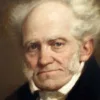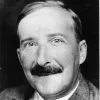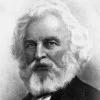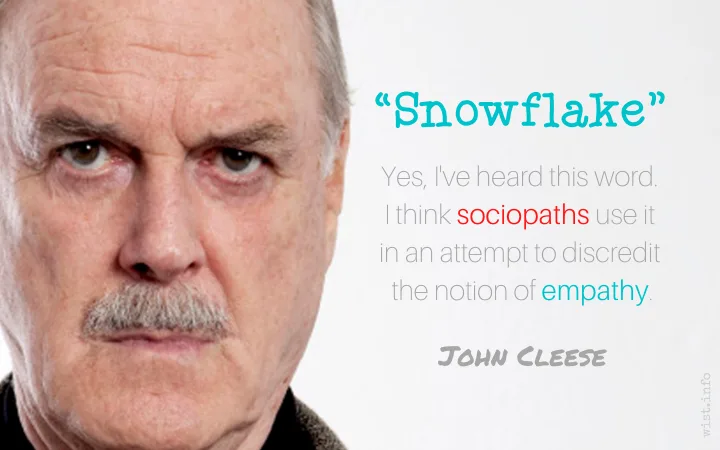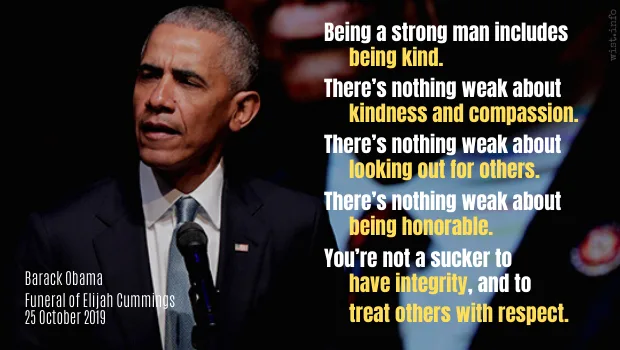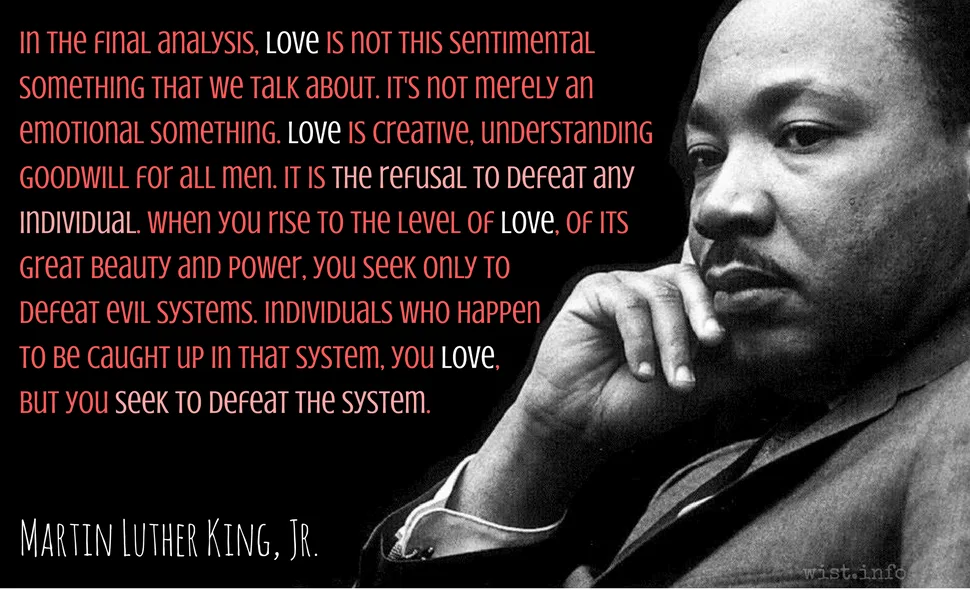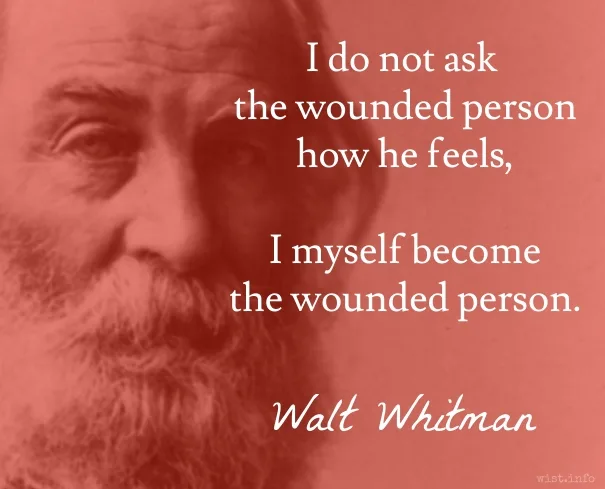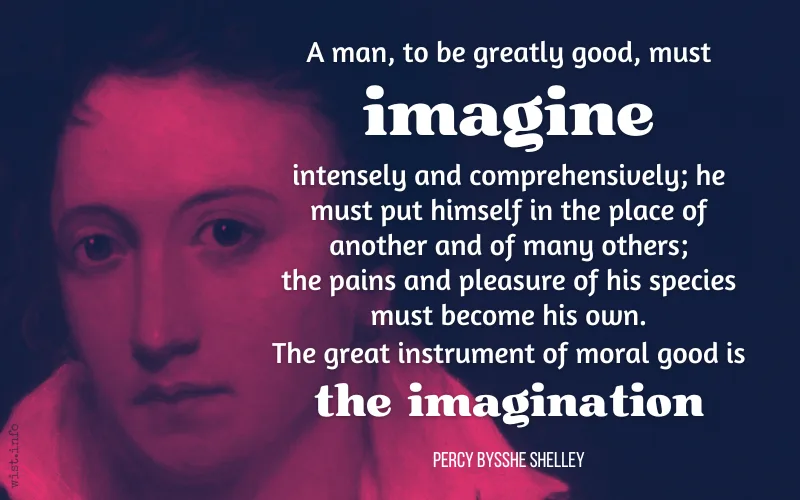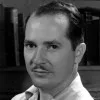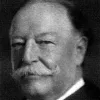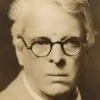Hell is wherever Love is not, and Heaven
Is Love’s location. No dogmatic creed,
No austere faith based on ignoble fear
Can lead thee into realms of joy and peace.
Unless the humblest creatures on the earth
Are bettered by thy loving sympathy
Think not to find a Paradise beyond.There is no sudden entrance into Heaven.
Slow is the ascent by the path of Love.Ella Wheeler Wilcox (1850-1919) American author, poet, temperance advocate, spiritualist
Poem (1906), “The Way,” ll. 5-13, New Thought Pastels
(Source)
Quotations about:
compassion
Note not all quotations have been tagged, so Search may find additional quotes on this topic.
More helpful than all wisdom is one draught of simple human pity that will not forsake us.
George Eliot (1819-1880) English novelist [pseud. of Mary Ann Evans]
The Mill on the Floss, Book 7, ch. 1 (1860)
(Source)
Benevolence is a natural instinct of the human mind. When A sees B in grievous distress, his conscience always urges him to entreat C to help him.
Sydney Smith (1771-1845) English clergyman, essayist, wit
(Attributed)
(Source)
In Hesketh Pearson, The Smith of Smiths, ch. 10 (1934).
ADRIANA: A wretched soul bruised with adversity
We bid be quiet when we hear it cry,
But were we burdened with like weight of pain,
As much or more we should ourselves complain.William Shakespeare (1564-1616) English dramatist and poet
Comedy of Errors, Act 2, sc. 1, l. 34ff (2.1.34-37) (1594)
(Source)
What a lamentable cuss man iz, he pittys hiz nabors misfortunes, bi calling them judgments from heaven.
[What a lamentable cuss man is: he pities his neighbors’ misfortunes, by calling them judgments from heaven.]Josh Billings (1818-1885) American humorist, aphorist [pseud. of Henry Wheeler Shaw]
Everybody’s Friend, Or; Josh Billing’s Encyclopedia and Proverbial Philosophy of Wit and Humor, ch. 144 “Affurisms: Gnats” (1874)
(Source)
We are afraid of having and showing a small mind, and we are not afraid of having and showing a small heart.
Joseph Joubert (1754-1824) French moralist, philosopher, essayist, poet
Pensées [Thoughts], 1805 entry [tr. Auster (1983)]
(Source)
I could not find an analog in other translations of the Pensées.
This increase in the life span and in the number of our senior citizens presents this Nation with increased opportunities: the opportunity to draw upon their skill and sagacity — and the opportunity to provide the respect and recognition they have earned. It is not enough for a great nation merely to have added new years to life — our objective must also be to add new life to those years.
John F. Kennedy (1917-1963) US President (1961-63)
“Special Message to the Congress on the Needs of the Nation’s Senior Citizens” (1963-02-21)
(Source)
It is well to give when asked, but it is better to give unasked, through understanding.
Kahlil Gibran (1883-1931) Lebanese-American poet, writer, painter [Gibran Khalil Gibran]
The Prophet, “Giving” (1923)
(Source)
Yes; quaint and curious war is!
You shoot a fellow down
You’d treat if met where any bar is,
Or help to half-a-crown.
There will always be a lost dog somewhere that will prevent me being happy.
[Il y aura toujours un chien perdu quelque part qui m’empêchera d’être heureux.]
I have known sorrow — therefore I
May laugh with you, O friend, more merrily
Than those who never sorrowed upon earth
And know not laughter’s worth.I have known laughter — therefore I
May sorrow with you far more tenderly
Than those who never guess how sad a thing
Seems merriment to one heart’s suffering.Theodosia Pickering Garrison (1874-1944) American poet
“Knowledge,” The Century Magazine (1900-08)
(Source)
Surely I wept, leaning upon a ledge
Of the rough rock, so that my escort said,
“Art thou then weak and foolish like the rest?
Here lives true piety when pity dies.
But who more wicked than the man who yields
To sorrow place where judgment is divine!”[Certo io piangea, poggiato a un de’ rocchi
del duro scoglio, sì che la mia scorta
mi disse: “Ancor se’ tu de li altri sciocchi?
Qui vive la pietà quand’è ben morta;
chi è più scellerato che colui
che al giudicio divin passion comporta?]Dante Alighieri (1265-1321) Italian poet
The Divine Comedy [Divina Commedia], Book 1 “Inferno,” Canto 20, l. 25ff (20.25-30) (1309) [tr. Johnston (1867)]
(Source)
Virgil chides Dante for weeping over the fate of the damned in the third circle, fourth bolgia, who themselves are also weeping.
Maybe. There are a lot of scholarly debates over some of the wording and pronoun references here. Some translators play off the word pietà meaning both "pity" and "piety" in Italian. It's also possible that, rather than the final lines condemning Dante for letting his compassion defy an acceptance of God's judgment, they refer to the sinful arrogance of fortune-tellers (the group being punished here) in believing they can question or change God's decrees for the future.
(Source (Italian)). Alternate translations:Leaning against the rock, I so great grief
Express'd, that thus my Guide to me apply'd;
Are you among the weak to be arrang'd?
When without life, 'tis here Compassion lives.
Who can more wicked be estem'd than He
Who thinks that the divine Decrees are wrong.
[tr. Rogers (1782), l. 22ff]Their laboring reins the falling tear bedew'd,
Deep struck with sympathetic woe I stood,
'Till thus the Bard my slumb'ring reason woke: --
"Dar'st thou the sentence of thy God arraign;
Or with presumptuous tears his doom profane?
Say, can thy tears his righteous doom revoke?
[tr. Boyd (1802), st. 5]Against a rock
I leant and wept, so that my guide exclaim’d:
“What, and art thou too witless as the rest?
Here pity most doth show herself alive,
When she is dead. What guilt exceedeth his,
Who with Heaven’s judgment in his passion strives?
[tr. Cary (1814)]Certes I wept so, leaning toward a breast
Of that hard shelf, mine escort chiding said:
"Why wilt thou yet be foolish as the rest?
Here pity best hath life when wholly dead:
What guiltier wretch than he whose grief avowed
Impugns Almighty Judgment?
[tr. Dayman (1843)]Certainly I wept, leaning on one of the rocks of the hard cliff, so that my Escort said to me: "Art thou, too, like the other fools?
"Here pity lives when it is altogether dead. Who more impious than he that sorrows at God's judgment?"
[tr. Carlyle (1849)]Sore I lamented, leaning on a rock,
A rough-planed crag, until my guide addressed
The words -- "Are you, too, foolish like the rest?
Here Pity is alive, e'en when quite dead.
And what can be more wicked than the man
Who 'gainst heaven's justice in his passion ran.
[tr. Bannerman (1850)]Truly I wept, leaning upon a peak
Of the hard crag, so that my Escort said
To me: "Art thou, too, of the other fools?
Here pity lives when it is wholly dead;
Who is a greater reprobate than he
Who feels compassion at the doom divine?
[tr. Longfellow (1867)]Of a truth I began to weep leaning against one of the rocks of the hard cliff, so that my Escort said to me: "Art thou yet among the other foolish ones? Here pity lives when it is right dead. Who is more wicked than he who brings passion to the judgement of God?"
[tr. Butler (1885)]Surely I wept, supported on a rise
Of that fire-hardened rock, so that my guide
Said to me: "Thou too 'mongst the little wise?
Here Pity lives alone, when it hath died.
Who is the greater scelerate than he
Who lets his passion 'gainst God's judgment bide?"
[tr. Minchin (1885)]Truly I wept, leaning on one of the rocks of the hard crag, so that my Guide said to me, “Art thou also one of the fools? Here pity liveth when it is quite dead. Who is more wicked than he who feels compassion at the Divine Judgment?"
[tr. Norton (1892)]I wept indeed, leaning against a rock on the stony ridge, so overcome, that my Guide said to me: "Art thou too like the other fools? Here pity liveth but when it is truly dead. Who is more lost to righteousness than he whose pity is awakened at the decree of God?"
[tr. Sullivan (1893)]Certain, I wept, supported on a comer
Of the hard spur, so freely that my escort
Said to me : "Art thou still among the simple?
Here piety lives when wholly dead is pity.
Who is than he more desperately wicked
Who to the doom divine doth bring compassion?
[tr. Griffith (1908)]I wept indeed, leaning on one of the rocks of the rugged ridge, so that my Escort said to me: "Art thou too as witless as the rest? Here pity lives when it is quite dead. Who is more guilty than he that makes the divine counsel subject to his will?"
[tr. Sinclair (1939)]Truly I wept, leant up against the breast
Of the hard granite, so that my Guide said:
"Art thou then still so foolish, like the rest?
Here pity lives when it is rightly dead.
What more impiety can he avow
Whose heart rebelleth at God's judgment dread?
[tr. Binyon (1943)]Truly I wept, leaned on the pinnacles
Of the hard rock; until my guide said, "Why!
And art thou too like all the other fools?
Here pity, or here piety, must die
If the other lives; who's wickeder than one
That's agonized by God's high equity?"
[tr. Sayers (1949)]Certainly,
I wept. I leaned agianst the jagged face
of a rock and wept so that my Guide said: "Still?
Still like the other fools? There is no place
for pity here. Who is more arrogant
within his soul, who is more impious
than one who dares to sorrow at God's judgment?
[tr. Ciardi (1954)]Truly I wept, leaning on one of the rocks of the hard crag, so that my guide said to me, “Are you even yet among the other fools? Here pity lives when it is altogether dead. Who is more impious than he who sorrows at God’s judgment?"
[tr. Singleton (1970)]Indeed I did weep, as I leaned my body
against a jut of rugged rock. My guide:
"So you are still like all the other fools?
In this place piety lives when pity is dead,
for who could be more wicked than that man
who tries to bend divine will to his own!
[tr. Musa (1971)]Of course I wept, leaning against a rock
along that rugged ridge, so that my guide
told me: “Are you as foolish as the rest?
Here pity only lives when it is dead:
for who can be more impious than he
who links God's judgment to passivity?
[tr. Mandelbaum (1980)]I certainly wept, supported on one of the rocks
Of the projecting stone, so that my escort
Said to me: "Are you too like the other fools?
Here pity is alive when it is dead:
Who is more criminal than he who suffers
Because he does not like the divine judgement?
[tr. Sisson (1981)]Truly I wept,
Leaning on an outcrop of that rocky site,
And my master spoke to me: "Do you suppose
You are above with the other fools even yet?
Here, pity lives when it is dead to these.
Who could be more impious than one who'd dare
To sorrow at the judgment God decrees?"
[tr. Pinsky (1994)]Surely I wept, leaning on one of the rocks of the hard ridge, so that my guide said to me: “Are you still one of the other fools?
Here pity lives when it is quite dead: who is more wicked than one who brings passion to God’s judgment?"
[tr. Durling (1996)]Truly, I wept, leaning against one of the rocks of the solid cliff, so that my guide said to me: "Are you like other fools, as well? Pity is alive here, where it is best forgotten. Who is more impious than one who bears compassion for God’s judgement?"
[tr. Kline (2002)]Of this, be sure: that, leaning on a spur
of that unyielding cliff, I wept. "Are you,"
my escort said, "like them, an idiot still?
Here pity lives where pity's truth is dead.
Who is more impious, more scarred with sin
than one who pleads compassion at God's throne?"
[tr. Kirkpatrick (2006)]Yes, I wept, leaning against a spur
of the rough crag, so that my escort said:
"Are you still witless as the rest?
Here piety lives when pity is quite dead.
Who is more impious than one who thinks
that God shows passion in His judgment?"
[tr. Hollander/Hollander (2007)]O yes, I wept, leaning for support on one
Of the solid rocks in the reef, making my guide
Say this: "You're still one of the stupid ones?
Down here, the only living pity is dead.
Is anyone more wicked than the man
Regretting the righteous judgment decreed by God?"
[tr. Raffel (2010)]I wept indeed, held up in my surprise
By one rock of the ridge. My Escort said:
"You're witless as the rest? Here pity dwells,
But only when it's absolutely dead.
Who is more guilty than he who by spells
And mysteries makes it seem as if divine
Judgment were subject to his will?"
[tr. James (2013)]
The Mediator between Brain and Hands must be the Heart.
[Der Mittler zwischen Hirn und Händen muss das Herz sein.]
Thea von Harbou (1888-1954) German screenwriter, novelist, film director, actress
Metropolis, ch. 5 [Maria] (1925) [tr. (1927)]
(Source)
The novel was written to be the basis for the film by Von Harbou's husband, Fritz Lang. She also collaborated with him on the script. The movie began shooting before the novel was published.
In talking with the growingly restless workers of the city, Maria adds, shortly after the above line:One will come, who will speak for you -- who will be the mediator between you, the Hands, and the man whose Brain and Will are over you all.
Von Harbau also included an epigraph at the beginning of the novel, which concludes (with a slightly different translation): "The mediator between brain and muscle must be the Heart."
Boundless compassion for all living things is the firmest and surest guarantee of pure moral conduct, and needs no casuistry. Whoever is inspired with it will assuredly injure no one, will wrong no one, will encroach on no one’s rights; on the contrary, he will be lenient and patient with everyone, will forgive everyone, will help everyone as much as he can, and all his actions will bear the stamp of justice, philanthropy, and loving-kindness. On the other hand, if we attempt to say, “This man is virtuous but knows no compassion,” or “He is an unjust and malicious man yet he is very compassionate,” the contradiction is obvious.
[Denn gränzenloses Mitleid mit allen lebenden Wesen ist der festeste und sicherste Bürge für das sittliche Wohlverhalten und bedarf keiner Kasuistik. Wer davon erfüllt ist, wird zuverlässig Keinen verletzen, Keinen beeinträchtigen, Keinem wehe thun, vielmehr mit Jedem Nachsicht haben, Jedem verzeihen, Jedem helfen, so viel er vermag, und alle seine Handlungen werden das Gepräge der Gerechtigkeit und Menschenliebe tragen. Hingegen versuche man ein Mal zu sagen: „dieser Mensch ist tugendhaft, aber er kennt kein Mitleid.” oder: „es ist ein ungerechter und boshafter Mensch; jedod, ist er sehr mitleidig;” so wird der Widerspruch fühlbar.]
Arthur Schopenhauer (1788-1860) German philosopher
On the Basis of Morality [Über die Grundlage der Moral], § 19.4 (Part 3, ch. 8.4) (1840) [tr. Saunders (1965)]
(Source)
(Source (German)). Alternate translation:Boundless compassion for all living beings is the surest and most certain guarantee of pure moral conduct, and needs no casuistry. Whoever is filled with it will assuredly injure no one, do harm to no one, encroach on no man's rights ; he will rather have regard for every one, forgive every one, help every one as far as he can, and all his actions will bear the stamp of justice and loving-kindness. On the other hand, if we try to say: "This man is virtuous, but he is a stranger to Compassion"; or: "he is an unjust and malicious man, yet very compassionate;" the contradiction at once leaps to light.
[tr. Bullock (1903)]
I don’t think I ever hurt any man’s feelings by my little gags. I know I never willfully did it. When I have to do that to make a living I will quit.
Call a jack a jack. Call a spade a spade. But always call a whore a lady. Their lives are hard enough, and it never hurts to be polite.
Altruism is a hard master; but so is opportunism.
Mignon McLaughlin (1913-1983) American journalist and author
The Neurotic’s Notebook, ch. 5 (1963)
(Source)
‘Tis unbecoming not to shed a tear
Over the wretched; he too is devoid
Of virtue, who abounds in wealth, yet scruples
Thro’ sordid avarice to relieve their wants.Euripides (485?-406? BC) Greek tragic dramatist
Antiope [Αντιοπη], frag. (c. 410 BC) [tr. Wodhall (1809)]
(Source)
Barnes frag. 62, Musgrave frag. 40.
In any country, regardless of what its laws say, wherever people act upon the idea that the disadvantage of one man is the good of another, there slavery exists. Wherever, in any country the whole people feel that the happiness of all is dependent upon the happiness of the weakest, there freedom exists.
Booker T. Washington (1856-1915) American educator, writer
Speech, Republican Club, New York City (12 Feb 1909)
(Source)
The love of our neighbor in all its fullness simply means being able to say to him: “What are you going through?” It is a recognition that the sufferer exists, not only as a unit in a collection, or a specimen from the social category labelled “unfortunate,” but as a man, exactly as we are, who was one day stamped with a special mark by affliction.
Simone Weil (1909-1943) French philosopher
“Studies with a View to the Love of God” (Apr 1942), Waiting for God [Awaiting God; Attente De Dieu] (1950)
(Source)
The idea of compassion has become unfashionable. It’s gotten confused with sentimentality, though you English majors know the difference: sentimentality is emotion without responsibility; compassion is the recognition of shared humanity. Chalk and cheese. Sentimentality is superficial, easy listening that does nothing to expand our understanding. Compassion is quite different. Risky and exigent, it puts you inside someone else. This is one of literature’s greatest strengths
Roxana Robinson (b. 1946) American novelist and biographer
“The Writer’s Life,” Authors Guild Bulletin (Winter 2015)
(Source)
It is compassion rather than the principle of justice which can guard us against being unjust to our fellow men.
Eric Hoffer (1902-1983) American writer, philosopher, longshoreman
The Passionate State of Mind, Aphorism 140 (1955)
(Source)
Compassion is probably the only antitoxin of the soul. Where there is compassion even the most poisonous impulses remain relatively harmless. One would rather see the world run by men who set their hearts on toys but are accessible to pity, than by men animated by lofty ideals whose dedication makes them ruthless. In the chemistry of man’s soul, almost all noble attributes — courage, honor, hope, faith, duty, loyalty, etc. — can be transmuted into ruthlessness. Compassion alone stands apart from the continuous traffic between good and evil proceeding within us.
Eric Hoffer (1902-1983) American writer, philosopher, longshoreman
The Passionate State of Mind, Aphorism 139 (1955)
(Source)
A religious man is a person who holds God and man in one thought at one time, at all times, who suffers in himself harm done to others, whose greatest passion is compassion, whose greatest strength is love and defiance of despair.
Abraham Joshua Heschel (1907-1972) Polish-American rabbi, theologian, philosopher
“What Ecumenism Is” (1963)
(Source)
Collected in Susanna Heschel, ed., Moral Grandeur and Spiritual Audacity (1996). In other essays in the book, he uses the first clause ("a person who holds God and man in one thought, at one time, at all times") as a definition of a "prophet."
Humility makes us charitable toward our neighbor. Nothing will make us so generous and merciful to the faults of others as seeing our own faults.
François Fénelon (1651-1715) French theologian, poet, writer [François de Salignac de la Mothe-Fénelon]
Letter, Undated [tr. Edmonson / Helms]
(Source)
In Robert J. Edmonson, Hal M. Helms (eds.), The Complete Fénelon, Part 2, ch. 8 (2008). Alternate translations:Nothing will make us so charitable and tender to the faults of others as by self-examination thoroughly to know our own.
[Source (1895)]Humility renders us charitable towards our neighbor; nothing will make us so tender and indulgent to the faults of others as a view of our own.
[tr. Metcalf (1853)]
What do we live for, if it is not to make life less difficult to each other?
George Eliot (1819-1880) English novelist [pseud. of Mary Ann Evans]
Middlemarch, Book 8, ch. 72 [Dorothea] (1871)
(Source)
Can I see another’s woe,
And not be in sorrow too?
Can I see another’s grief,
And not seek for kind relief?William Blake (1757-1827) English poet, mystic, artist
“On Another’s Sorrow,” st. 1, Songs of Innocence and of Experience (1789)
(Source)
Reason was an ambiguous tool, because, as we have seen throughout history, it can be used to find a logically sound rationale for actions that violate our humanity. […] If it is not tempered by compassion, and empathy, reason can lead men and women into a moral void.
Karen Armstrong (b. 1944) British author, comparative religion scholar
Twelve Steps To a Compassionate Life, “Empathy” (2010)
(Source)
I’m not sure there can be loving without commitment, although commitment takes all kinds of forms, and there can be commitment for the moment as well as commitment for all time. The kind that is essential for loving marriages — and love affairs, as well — is a commitment to preserving the essential quality of your partner’s soul, adding to them as a person rather than taking away.
Merle Shain (1935-1989) Canadian journalist and author
Some Men are More Perfect Than Others, ch. 9 “Being True” (1973)
(Source)
I note in a letter forwarded to me by the Famous Writers School that I have “aided the Communist conspiracy.” If this is indeed true, and I mean this with sincerity and respect, I should turn myself in to any local F.B.I. office. It was not my intention to aid and conspire, when I wrote the TV script, “Carol for Another Christmas,” nor was I remotely interested in propagandizing for the United Nations or for any organization. I was deeply interested in conveying what is a deeply felt conviction of my own. This is simply to suggest that human beings must involve themselves in the anguish of other human beings. This, I submit to you, is not a political thesis at all. It is simply an expression of what I would hope might be ultimately a simple humanity for humanity’s sake.
Rod Serling (1924-1975) American screenwriter, playwright, television producer, narrator
Letter to viewer who complained about the TV movie “Carol for Another Christmas” (1964)
(Source)
Quoted in Anne Serling, As I Knew Him: My Dad, Rod Serling (2013).
So come, young soldiers, welcome to our house.
My destiny, harrying me with trials hard as yours,
led me as well, at last, to anchor in this land.
Schooled in suffering, now I learn to comfort
those who suffer too.[Quare agite, O tectis, iuvenes, succedite nostris.
Me quoque per multos similis fortuna labores
iactatam hac demum voluit consistere terra.
Non ignara mali, miseris succurrere disco]Virgil (70-19 BC) Roman poet [b. Publius Vergilius Maro; also Vergil]
The Aeneid [Ænē̆is], Book 1, l. 627ff (1.627-630) [Dido] (29-19 BC) [tr. Fagles (2006), l. 748ff]
(Source)
(Source (Latin)). Alternate translations:Therefore bold Trojans to our Court advance;
We in such dangers tost, and various chance
At length our selves did in this countrey plant,
I know t'help others, taught by my own want.
[tr. Ogilby (1649)]Enter, my noble guest, and you shall find,
If not a costly welcome, yet a kind:
For I myself, like you, have been distress'd,
Till Heav'n afforded me this place of rest;
Like you, an alien in a land unknown,
I learn to pity woes so like my own.
[tr. Dryden (1697)]Then enter, chiefs, these friendly doors;
I too have had my fate, like yours,
Which, many a suffering overpast,
Has willed to fix me here at last.
Myself not ignorant of woe,
Compassion I have learned to show.
[tr. Conington (1866)]Come then, O warriors, enter our abodes!
I also from calamities like yours
Have suffered much, till here I set my feet.
Not ignorant of trouble, I have learned
To succor the distressed
[tr. Cranch (1872), l. 817ff]Come therefore, O men, and enter our house. Me too hath a like fortune driven through many a woe, and willed at last to find my rest in this land. Not ignorant of ill do I learn to succour the afflicted.
[tr. Mackail (1885)]So hasten now to enter in 'neath roofs of me and mine.
Me too a fortune such as yours, me tossed by many a toil,
Hath pleased to give abiding-place at last upon this soil,
Learned in illhaps full wise am I unhappy men to aid.
[tr. Morris (1900)]Welcome, then, heroes! Me hath Fortune willed
Long tost, like you, through sufferings, here to rest
And find at length a refuge. Not unskilled
In woe, I learn to succour the distrest.
[tr. Taylor (1907), st. 83, l. 739ff]Therefore, behold, our portals are swung wide
for all your company. I also bore
hard fate like thine. I too was driven of storms
and after long toil was allowed at last
to call this land my home. O, I am wise
in sorrow, and I help all suffering souls!
[tr. Williams (1910)]Come therefore, sirs, and pass within our halls. Me, too, has a like fortune driven through many toils, and willed that at last I should find rest in this land. Not ignorant of ill do I learn to befriend the unhappy.
[tr. Fairclough (1916)]Enter my house. I, too, am fortune-driven
Through many sufferings; this land at last
Has brought me rest. Not ignorant of evil,
I know one thing, at least, -- to help the wretched.
[tr. Humphries (1951)]So, gentlemen, do not hesitate to come under my roof.
I too have gone through much; like you, have been roughly handled
By fortune; but now at last it has willed me to settle here.
Being acquainted with grief, I am learning to help the unlucky.
[tr. Day Lewis (1952)]Thus, young men, you are welcome to our halls.
My destiny, like yours, has willed that I,
a veteran of hardships, halt at last
in this country. Not ignorant of trials,
I now can learn to help the miserable.
[tr. Mandelbaum (1971), l. 878ff]Come, then, soldiers, be our guests. My life
Was one of hardship and forced wandering
Like your own, till in this land at length
Fortune would have me rest. Through pain I've learned
To comfort suffering men.
[tr. Fitzgerald (1981)]This is why I now invite your warriors to come into my house. I, too, have known ill fortune like yours and been tossed from one wretchedness to another until at last I have been allowed to settle in this land. Through my own suffering, I am learning to help those who suffer.
[tr. West (1990)]So come, young lords, and enter our palace.
Fortune, pursuing me too, through many similar troubles,
willed that I would find peace at last in this land.
Not being unknown to evil, I’ve learned to aid the unhappy.
[tr. Kline (2002)]And so, young men, come under my roof.
My fortune too has long been adverse
But at last has allowed me to rest in this land.
My own acquaintance with suffering
Has taught me to aid others in need.
[tr. Lombardo (2005), l. 767]So come, young men, enter my home. Fortune once harassed me with hardship like your own. At last, the fates let me settle in this land. Knowing pain, I can learn to help the pain of others.
[tr. Bartsch (2021)]
There iz nothing that a man kan do that should cut him off from pitty, the fakt that he iz human should always entitle him to commiserashun.
[There is nothing that a man can do that should cut him off from pity; the fact that he is human should always entitle him to commiseration.]
Josh Billings (1818-1885) American humorist, aphorist [pseud. of Henry Wheeler Shaw]
Everybody’s Friend, Or; Josh Billing’s Encyclopedia and Proverbial Philosophy of Wit and Humor, “Plum Pits” (1874)
(Source)
Civility does not here mean the mere outward gentleness of speech cultivated for the occasion, but an inborn gentleness and desire to do the opponent good.
Mohandas Gandhi (1869-1948) Indian lawyer, anti-colonial nationalist, political ethicist [Mahatma Gandhi]
Autobiography : The Story of My Experiments with Truth>, ch. 24 (1927)
(Source)
The hardest spiritual work in the world is to love the neighbor as the self — to encounter another human being not as someone you can use, change, fix, help, save, enroll, convince or control, but simply as someone who can spring you from the prison of yourself, if you will allow it.
Barbara Brown Taylor (b. 1951) American minister, academic, author
An Altar in the World, ch. 7 (2009)
(Source)
Reproached one day because he gave alms to a good-for-nothing, he said, “It was the man that I pitied, not his conduct.”
[ὀνειδιζόμενός ποτε ὅτι πονηρῷ ἀνθρώπῳ ἐλεημοσύνην ἔδωκεν, “οὐ τὸν τρόπον,” εἶπεν, “ἀλλὰ τὸν ἄνθρωπον ἠλέησα.”]
Aristotle (384-322 BC) Greek philosopher
Attributed in Diogenes Laërtius, Lives and Opinions of Eminent Philosophers [Vitae Philosophorum], Book 5, sec. 11 [tr. Mensch (2018)]
(Source)
(Greek Source). Alternate translations:On one occasion he was blamed for giving alms to a worthless man, and he replied, “I did not pity the man, but his condition.”
[tr. Yonge (1853)]Being once reproached for giving alms to a bad man, he rejoined, "It was the man and not his character that I pitied."
[tr. Hicks (1925), sec. 17]After he was reproached for giving money to a wretched man, he said, “It wasn’t the character, but the man I pitied.”
[tr. @sentantiq [2016)]Once, he was reproached because he gave charity to a lowly person, so he said, "I gave charity to a man, not a way of life."
[Source, sec. 17]
The happy should not insist too much upon their happiness in the presence of the unhappy.
We’re here to use our intelligence, yes, but that ain’t everything. It’s our duty to see through things, but also to see things through. Or I’ll put it another way. We’re not primarily put on this earth to see through one another, but to see one another through.
Peter De Vries (1910-1993) American editor, novelist, satirist
Let Me Count the Ways (1965)
(Source)
Santa Claus is anyone who loves another and seeks to make them happy; who gives himself by thought or word or deed in every gift that he bestows; who shares his joys with those who are sad; whose hand is never closed against the needy; whose arm is ever outstretched to aid the week; whose sympathy is quick and genuine in time of trouble; who recognizes a comrade and brother in every man he meets upon life’s common road; who lives his life throughout the entire year in the Christmas spirit.
I am seeking to rescue the poor stockinger, the Luddite cropper, the “obsolete” hand-loom weaver, the “utopian” artisan, and even the deluded follower of Joanna Southcott, from the enormous condescension of posterity. Their crafts and traditions may have been dying. Their hostility to the new industrialism may have been backward-looking. Their communitarian ideals may have been fantasies. Their insurrectionary conspiracies may have been foolhardy. But they lived through these times of acute social disturbance, and we did not. Their aspirations were valid in terms of their own experience; and, if they were casualties of history, they remain, condemned in their own lives, as casualties.
E. P. Thompson (1924-1993) British historian, writer, activist [Edward Palmer Thompson]
The Making of the English Working Class, Preface (1963)
(Source)
The most beautiful people we have known are those who have known defeat, known suffering, known struggle, known loss, and have found their way out of the depths. These persons have an appreciation, a sensitivity, and an understanding of life that fills them with compassion, gentleness, and a deep loving concern. Beautiful people do not just happen.
Elisabeth Kübler-Ross (1926-2004) Swiss-American psychiatrist, author
Death: The Final Stage of Growth (1975)
(Source)
The one and only test of a valid religious idea, doctrinal statement, spiritual experience, or devotional practice was that it must lead directly to practical compassion. If your understanding of the divine made you kinder, more empathetic, and impelled you to express this sympathy in concrete acts of loving-kindness, this was good theology. But if your notion of God made you unkind, belligerent, cruel, or self-righteous, or if it led you to kill in God’s name, it was bad theology. Compassion was the litmus test for the prophets of Israel, for the rabbis of the Talmud, for Jesus, for Paul, and for Muhammad, not to mention Confucius, Lao-tsu, the Buddha, or the sages of the Upanishads.
Karen Armstrong (b. 1944) British author, comparative religion scholar
The Spiral Staircase: My Climb Out of Darkness (2004)
(Source)
TECMESSA: Kindness gives birth to kindness.
Sophocles (496-406 BC) Greek tragic playwright
Ajax
Alt. trans.:
- "For it is always kindness which breeds kindness." [tr. Garvie (1998), ll. 522-23]
- "Kindness begets kindness." [tr. Golder & Pevear (1999), l. 584]
- "'Tis kindness that still begets kindness." [tr. Jebb (1917), ll. 521-22]
- "For kindness begets kindness evermore." [tr. Trevelyan (1919)]
Compassion is not a popular virtue. Very often when I talk to religious people, and mention how important it is that compassion is the key, that it’s the sine qua non of religion, people look kind of balked, and stubborn sometimes, as much to say, “What’s the point of having religion if you can’t disapprove of other people?”
Karen Armstrong (b. 1944) British author, comparative religion scholar
NOW Interview with Bill Moyers, PBS (1 Mar 2002)
(Source)
There are some forms of religion that must make God weep. There are some forms of religion that are bad, just as there’s bad cooking or bad art or bad sex, you have bad religion too. Religion that has concentrated on egotism, that’s concentrated on belligerence rather than compassion.
Karen Armstrong (b. 1944) British author, comparative religion scholar
NOW Interview with Bill Moyers, PBS (1 Mar 2002)
(Source)
What makes people hard-hearted is this, that each man has, or thinks he has, as much as he can bear in his own troubles.
[Was die Menschen hartherzig macht, is Dieses, daß jeder an seinen eigenen Plagen genug zu tragen hat, oder doch es meint.]
Arthur Schopenhauer (1788-1860) German philosopher
Parerga and Paralipomena, Vol. 2, ch. 26 “Psychological Observations [Psychologische Bemerkungen],” § 325 (1851) [tr. Saunders (1890)]
(Source)
(Source (German)). Alternate translation:What makes a man hard-hearted is this, that each man has, or fancies he has, sufficient in his own troubles to bear.
[tr. Dircks]
What we need in the United States is not division; what we need in the United States is not hatred; what we need in the United States is not violence or lawlessness; but love and wisdom, and compassion toward one another, and a feeling of justice toward those who still suffer within our country, whether they be white or they be black.
Robert Francis Kennedy (1925-1968) American politician
Statement on the Assassination of Martin Luther King, Jr., Indianapolis (1968-04-04)
(Source)
Ill can he rule the great, that cannot reach the small.
Edmund Spenser (c. 1552-1599) English poet
The Faerie Queene, Book 5, Canto 2, st. 43 (1589-96)
(Source)
For nothing is more blamefull to a Knight,
That court’sie doth as well as armes professe,
However strong and fortunate in fight,
Then the reproch of pride and cruelnesse:
In vain he seeketh others to suppresse,
Who hath not learned himself first to subdue:
All flesh is frayle and full of ficklenesse,
Subject to fortunes chance, still chaunging new;
What haps to-day to me to-morrow may to you.Edmund Spenser (c. 1552-1599) English poet
The Faerie Queene, Book 6, canto 1, st. 41 (1590-96)
(Source)
That city [is best to live in,] in which those who are not wronged, no less than those who are wronged, exert themselves to punish the wrongdoers.
Solon (c. 638 BC - 558 BC) Athenian statesman, lawmaker, poet
Quoted in Plutarch, Parallel Lives, “The Life of Solon,” sec. 18.5 [tr. Perrin (1914)]
(Source)
Alt. trans.:
- "That [city is best managed] in which those who are not wronged espouse the cause of those who are, and punish their oppressors." [tr. Stewart, Long (1894)]
- "That [city is best modeled] where those that are not injured try and punish the unjust as much as those that are." [Source]
- "That [city is best modeled] where those who are not injured, are as ready to prosecute and punish offenders, as those who are." [tr. Langhorne, Langhorne (1819)]
- "The city [is best governed of all] where those who have not been wronged show themselves just as ready to punish the offender as thouse who have been." [tr. Scott-Kilvert (1960)]
- Paraphrased as "Justice can be secured in Athens if those who are not injured feel as indignant as those who are," in Earl Warren, "The Law and the Future," Fortune (Nov 1955).
It is only hypocrites who cannot forgive hypocrisy, whereas those who search for truth are too conscious of the maze to be hard on others.
E. M. Forster (1879-1970) English novelist, essayist, critic, librettist [Edward Morgan Forster]
“Albergo Empedocle” (1903)
(Source)
For a man of sensitivity and compassion to exercise great powers in a time of crisis is a grim and agonizing thing.
Richard Hofstadter (1916-1970) American historian and intellectual
The American Political Tradition: And the Men Who Made It, Part 5, ch. 7 (1958)
(Source)
Referring to Abraham Lincoln and the Civil War.
“Snowflake.” Yes, I’ve heard this word. I think sociopaths use it in an attempt to discredit the notion of empathy.
If a man who was rich enough in this world’s goods saw that one of his brothers was in need, but closed his heart to him, how could the love of God be living in him? My children, our love is not to be just words or mere talk, but something real and active.
[ὃς δ’ ἂν ἔχῃ τὸν βίον τοῦ κόσμου καὶ θεωρῇ τὸν ἀδελφὸν αὐτοῦ χρείαν ἔχοντα καὶ κλείσῃ τὰ σπλάγχνα αὐτοῦ ἀπ’ αὐτοῦ πῶς ἡ ἀγάπη τοῦ Θεοῦ μένει ἐν αὐτῷ. Τεκνία μὴ ἀγαπῶμεν λόγῳ μηδὲ τῇ γλώσσῃ ἀλλὰ ἐν ἔργῳ καὶ ἀληθείᾳ.]
The Bible (The New Testament) (AD 1st - 2nd C) Christian sacred scripture
1 John 3:17-18 [JB (1966)]
(Source)
(Source (Greek)). Alternate translations:But whoso hath this world's good, and seeth his brother have need, and shutteth up his bowels of compassion from him, how dwelleth the love of God in him?
My little children, let us not love in word, neither in tongue; but in deed and in truth.
[KJV (1611)]If we are rich and see others in need, yet close our hearts against them, how can we claim that we love God? My children, our love should not be just words and talk; it must be true love, which shows itself in action.
[GNT (1976)]If anyone is well-off in worldly possessions and sees his brother in need but closes his heart to him, how can the love of God be remaining in him? Children, our love must be not just words or mere talk, but something active and genuine.
[NJB (1985)]But if someone has material possessions and sees a brother or sister in need but refuses to help—how can the love of God dwell in a person like that?
Little children, let’s not love with words or speech but with action and truth.
[CEB (2011)]If anyone has material possessions and sees a brother or sister in need but has no pity on them, how can the love of God be in that person? Dear children, let us not love with words or speech but with actions and in truth.
[NIV (2011)]How does God’s love abide in anyone who has the world’s goods and sees a brother or sister in need and yet refuses help?
Little children, let us love, not in word or speech, but in truth and action.
[NRSV (2021 ed.)]
I was thinking I’d want my daughters to know how much I love them, but I’d also want them to know that being a strong man includes being kind. That there’s nothing weak about kindness and compassion. There’s nothing weak about looking out for others. There’s nothing weak about being honorable. You’re not a sucker to have integrity, and to treat others with respect.
Barack Obama (b. 1961) American politician, US President (2009-2017)
Speech, Funeral of Elijah Cummings, Washington, DC (25 Oct 2019)
(Source)
Jesus replied, “A man was going down from Jerusalem to Jericho, and fell into the hands of robbers, who stripped him, beat him, and went away, leaving him half dead. Now by chance a priest was going down that road; and when he saw him, he passed by on the other side. So likewise a Levite, when he came to the place and saw him, passed by on the other side.
But a Samaritan while traveling came near him; and when he saw him, he was moved with pity. He went to him and bandaged his wounds, having poured oil and wine on them. Then he put him on his own animal, brought him to an inn, and took care of him. The next day he took out two denarii, gave them to the innkeeper, and said, ‘Take care of him; and when I come back, I will repay you whatever more you spend.’
Which of these three, do you think, was a neighbor to the man who fell into the hands of the robbers?” He said, “The one who showed him mercy.” Jesus said to him, “Go and do likewise.”
The Bible (The New Testament) (AD 1st - 2nd C) Christian sacred scripture
Luke 10:30-37 [NRSV]
(Source)
Alt. trans. [KJV]: "And Jesus answering said, A certain man went down from Jerusalem to Jericho, and fell among thieves, which stripped him of his raiment, and wounded him, and departed, leaving him half dead. And by chance there came down a certain priest that way: and when he saw him, he passed by on the other side. And likewise a Levite, when he was at the place, came and looked on him, and passed by on the other side. But a certain Samaritan, as he journeyed, came where he was: and when he saw him, he had compassion on him, and went to him, and bound up his wounds, pouring in oil and wine, and set him on his own beast, and brought him to an inn, and took care of him. And on the morrow when he departed, he took out two pence, and gave them to the host, and said unto him, Take care of him; and whatsoever thou spendest more, when I come again, I will repay thee. Which now of these three, thinkest thou, was neighbour unto him that fell among the thieves? And he said, He that shewed mercy on him. Then said Jesus unto him, Go, and do thou likewise."
Alt. trans. [GNT]: "Jesus answered, “There was once a man who was going down from Jerusalem to Jericho when robbers attacked him, stripped him, and beat him up, leaving him half dead. It so happened that a priest was going down that road; but when he saw the man, he walked on by on the other side. In the same way a Levite also came there, went over and looked at the man, and then walked on by on the other side. But a Samaritan who was traveling that way came upon the man, and when he saw him, his heart was filled with pity. He went over to him, poured oil and wine on his wounds and bandaged them; then he put the man on his own animal and took him to an inn, where he took care of him. The next day he took out two silver coins and gave them to the innkeeper. ‘Take care of him,’ he told the innkeeper, ‘and when I come back this way, I will pay you whatever else you spend on him.’” And Jesus concluded, “In your opinion, which one of these three acted like a neighbor toward the man attacked by the robbers?” The teacher of the Law answered, “The one who was kind to him.” Jesus replied, “You go, then, and do the same.”
Our culture has accepted two huge lies. The first is that, if you disagree with someone’s lifestyle, you must fear or hate them. The second is that to love someone means you agree with everything they believe, say, or do. Both are nonsense. You don’t have to compromise convictions to be compassionate.
Rick Warren (b. 1954) American Christian pastor and author
“Rick Warren on Muslims, Evangelism & Missions,” interview with Brandon A. Cox, Christian Post (2 Mar 2012)
(Source)
We have all heard enough to fill a book about Dr. Johnson’s incivilities. I wish they would compile another book consisting of Dr. Johnson’s apologies. There is no better test of a man’s ultimate chivalry and integrity than how he behaves when he is wrong; and Johnson behaved very well. He understood (what so many faultlessly polite people do not understand) that a stiff apology is a second insult. He understood that the injured party does not want to be compensated because he has been wronged; he wants to be healed because he has been hurt.
Manners are a sensitive awareness of the feelings of others. If you have that awareness, you have good manners, no matter what fork you use.
Emily Post (1872-1960) American author, columnist [née Price]
(Attributed)
Often cited to her famous Etiquette in Society, in Business, in Politics, and at Home (1922), but not found in that work. Claimed as genuine by the Emily Post Institute.
Tolerance, good temper and sympathy — they are what matter really, and if the human race is not to collapse they must come to the front before long.
E. M. Forster (1879-1970) English novelist, essayist, critic, librettist [Edward Morgan Forster]
“What I Believe,” The Nation (16 Jul 1938)
(Source)
Your Honor, years ago I recognized my kinship with all living beings, and I made up my mind then that I was not one bit better than the meanest on earth. I said then, and I say now, that while there is a lower class, I am in it; and while there is a criminal element, I am of it; and while there is a soul in prison, I am not free.
Eugene V. Debs (1855-1926) American union leader, activist, socialist, politician
Statement to the Court (1918-09-18)
(Source)
On being convicted of sedition for urging resistance to the draft. Often paraphrased:As long as there is a lower class, I am in it. As long as there is a criminal element, I am of it. As long as there is a soul in prison, I am not free.
We will match your capacity to inflict suffering by our capacity to endure suffering. We will meet your physical force with soul force. Do to us what you will, and we will still love you. We cannot in all good conscience obey your unjust laws because non-cooperation with evil is as much a moral obligation as is cooperation with good. And so put us in jail, and we will go in with humble smiles on our faces, still loving you. Bomb our homes and threaten our children, and we will still love you. Send your propaganda agents around the country and make it appear that we are not fit morally, culturally, and otherwise for integration. And we will still love you. Send your hooded perpetrators of violence into our communities at the midnight hours, and drag us out on some wayside road and beat us and leave us half dead, and we will still love you. But be assured that we will wear you down by our capacity to suffer.
And one day we will win our freedom, but not only will we win freedom for ourselves, we will so appeal to your heart and conscience that we will win you in the process. And our victory will be a double victory.
Martin Luther King, Jr. (1929-1968) American clergyman, civil rights leader, social activist, preacher
“Loving Your Enemies,” sermon, Detroit Council of Churches Noon Lenten Services (1961-03-07)
(Source)
Reprinted in edited form in King, Strength to Love, ch. 5 "Loving Your Enemies," sec. 2 (1963). In the preface he notes this sermon was originally written while in jail in Georgia.
See Gandhi.
The last business of Christ’s life was the saving of a poor penitent thief. That was part of His triumph. That was one of the glories attending His death.
Dwight Lyman "D. L." Moody (1837-1899) American evangelist and publisher
“The Penitent Thief” (sermon)
(Source)
In the final analysis, love is not this sentimental something that we talk about. It’s not merely an emotional something. Love is creative, understanding goodwill for all men. It is the refusal to defeat any individual. When you rise to the level of love, of its great beauty and power, you seek only to defeat evil systems. Individuals who happen to be caught up in that system, you love, but you seek to defeat the system.
Martin Luther King, Jr. (1929-1968) American clergyman, civil rights leader, social activist, preacher
Sermon (1957-11-17), “Loving Your Enemies,” Dexter Avenue Baptist Church, Montgomery
(Source)
The moral of it is, that if we would build on a sure foundation in friendship, we must love our friends for THEIR sakes rather than OUR OWN; we must look at their truth to THEMSELVES, full as much as their truth to US. In the latter case, every wound to self-love would be a cause of coldness; in the former, only some painful change in the friend’s character and disposition — some frightful breach in his allegiance to his better self — could alienate the heart.
Charlotte Brontë (1816-1855) British novelist [pseud. Currer Bell]
Letter to W S. Williams (21 Jul 1851)
(Source)
An individual has not begun to live until he can rise above the narrow horizons of his particular individualistic concerns to the broader concerns of all humanity. And this is one of the big problems of life, that so many people never quite get to the point of rising above self. And so they end up the tragic victims of self-centeredness. They end up the victims of distorted and disrupted personality.
Martin Luther King, Jr. (1929-1968) American clergyman, civil rights leader, social activist, preacher
“Conquering Self-Centeredness,” sermon, Dexter Avenue Baptist Church, Montgomery, Alabama (11 Aug 1957)
(Source)
If a civil word or two will render a man happy, he must be a wretch indeed who will not give them to him.
Louis XIV (1638-1715) French monarch (1643-1715) [Louis the Great, the Sun King)
(Attributed)
(Source)
Quoted in William Seward, Anecdotes of Distinguished Persons, Vol 4, 5th ed. (1804).
Yet somehow our society must make it right and possible for old people not to fear the young or be deserted by them, for the test of a civilization is the way that it cares for its helpless members.
I do not ask the wounded person how he feels, I myself become the wounded person.
Rejoice with them that do rejoice, and weep with them that weep.
The Bible (The New Testament) (AD 1st - 2nd C) Christian sacred scripture
Romans 12:15 [KJV]
Quoting 12:15-18: "Rejoice with those who rejoice, and weep with those who weep. Be of the same mind toward one another; do not be haughty in mind, but associate with the lowly Do not be wise in your own estimation. Never pay back evil for evil to anyone Respect what is right in the sight of all men. If possible, so far as it depends on you, be at peace with all men."
Now, I’m an atheist. I really don’t believe for a moment that our moral sense comes from a God. […] It’s human, universal, [it’s] being able to think our way into the minds of others. As I said at the time, what those holy fools clearly lacked, or clearly were able to deny themselves, was the ability to enter into the minds of the people they were being so cruel to. Amongst their crimes, is, was, a failure of the imagination, of the moral imagination.
It’s okay if you don’t want to feed the hungry, or heal the sick, or house the homeless. Just don’t say you’re doing it for their own good. Don’t say you’d like to help people, but your hands are tied, because if you did it would cause a “culture of dependency,” or “go against the Bible,” or, worst of all, “rob them of their freedom” to be sick and hungry. Just admit you’re selfish, and based on how little your beliefs mirror the actual teachings of Jesus you might as well be worshiping Despicable Me.
Yet, taught by time, my heart has learned to glow
For other’s good, and melt at other’s woe.
Imagining what it is like to be someone other than yourself is at the core of our humanity. It is the essence of compassion, and it is the beginning of morality.
Ian McEwan (b. 1948) English novelist and screenwriter
“Only love and then oblivion,” The Guardian (15 Sep 2001)
(Source)
They did to others that which they would not they should do to them — that grand principle of immorality upon which rests the whole art of war.
[Ils faisaient à autrui ce qu’ils ne voulaient pas qu’on leur fît, principe immoral sur lequel repose tout l’art de la guerre.]
Jules Verne (1828-1905) French novelist, poet, playwright
From the Earth to the Moon, ch. 10 (1865) [tr. Scribner’s (1890)]
(Source)
Alt. trans.: "They did unto others what they would not have others do unto them, an immoral principle that is the basic premise of the art of war." [tr. Miller (1978)]
A man, to be greatly good, must imagine intensely and comprehensively; he must put himself in the place of another and of many others; the pains and pleasure of his species must become his own. The great instrument of moral good is the imagination; and poetry administers to the effect by acting upon the cause.
None knowes the weight of anothers burthen.
George Herbert (1593-1633) Welsh priest, orator, poet.
Jacula Prudentum, or Outlandish Proverbs, Sentences, &c. (compiler), # 880 (1651 ed.)
(Source)
If you ask any police officer what the worst part of the job is, they will always say breaking bad news to relatives, but this is not the truth. The worst part is staying in the room after you’ve broken the news, so that you’re forced to be there when someone’s life disintegrates around them. Some people say it doesn’t bother them — such people are not to be trusted.
The pat on the back, the arm around the shoulder, the praise for what was done right, and the sympathetic nod for what wasn’t, are as much a part of golf as life itself.
Sin? Sin like love was a word hard to define. It came in two bitter but vastly different flavors. The first lay in violating the taboos of your tribe … The other meaning of sin was easier to define because it was not molded by the murky concepts of religion and taboo: Sin is behavior that ignores the welfare of others.
We believe we must be the family of America, recognizing that at the heart of the matter we are bound one to another, that the problems of a retired school teacher in Duluth are our problems; that the future of the child in Buffalo is our future; that the struggle of a disabled man in Boston to survive and live decently is our struggle; that the hunger of a woman in Little Rock is our hunger; that the failure anywhere to provide what reasonably we might, to avoid pain, is our failure.
Mario Cuomo (1932-2015) American politician
Keynote Address, Democratic National Convention (16 Jul 1984)
(Source)
Even while we kill and punish we must try to feel about the enemy as we feel about ourselves — to wish that he were not bad, to hope that he may, in this world or another, be cured: in fact, to wish his good. That is what is meant in the Bible by loving him: wishing his good, not feeling fond of him nor saying he is nice when he is not.
C. S. Lewis (1898-1963) English writer, literary scholar, lay theologian [Clive Staples Lewis]
Mere Christianity, ch. 7 “Forgiveness” (1952)
(Source)
See Matthew 5:43-45.
We believe in only the government we need, but we insist on all the government we need. We believe in a government that is characterized by fairness and reasonableness, a reasonableness that goes beyond labels, that doesn’t distort or promise to do things that we know we can’t do. We believe in a government strong enough to use words like “love” and “compassion” and smart enough to convert our noblest aspirations into practical realities. We believe in encouraging the talented, but we believe that while survival of the fittest may be a good working description of the process of evolution, a government of humans should elevate itself to a higher order.
Mario Cuomo (1932-2015) American politician
Keynote Address, Democratic National Convention (16 Jul 1984)
(Source)
We believe in a single fundamental idea that describes better than most textbooks and any speech that I could write what a proper government should be: the idea of family, mutuality, the sharing of benefits and burdens for the good of all, feeling one another’s pain, sharing one another’s blessings — reasonably, honestly, fairly, without respect to race, or sex, or geography, or political affiliation.
If I should try to say anew the creed of the Optimist, I should say something like this: “I believe in God, I believe in Man, I believe in the power of the spirit, I believe we should so act that we may draw nearer and more near the age when no man shall live at his ease while another suffers.”
But the truth is, that no man is much regarded by the rest of the world, except where the interest of others is involved in his fortune. The common employments or pleasures of life, love or opposition, loss or gain, keep almost every mind in perpetual agitation. If any man would consider how little he dwells upon the condition of others, he would learn how little the attention of others is attracted by himself.
Samuel Johnson (1709-1784) English writer, lexicographer, critic
The Rambler, #159 (24 Sep 1751)
(Source)
The whole point of society is to be less unforgiving than nature.
Arthur D. Hlavaty (b. 1942) American writer, editor, publisher [a/k/a "Supergee"]
“Derogatory Reference” #100 (2002)
(Source)
At a dinner given by Periander, tyrant of Corinth, to the Seven Wise Men, including Anacharsis, the question was asked, What is the ideal state, or most perfect form of popular government? The answers given by the philosophers were as follows:—
Solon: “That in which an injury done to the least of its citizens is an injury done to all.”
Bias: “Where the law has no superior.”
Thales: “Where the rich are neither too rich, nor the poor too poor.”
Anacharsis: “Where virtue is honored, and vice detested.”
Pittacus: “Where dignities are always conferred on the good, never on the bad.”
Cleobulus: “Where the citizens fear blame more than punishment.”
Chilo: “Where the laws are more regarded, and have more authority, than the orators.”
Goethe has asked, “What government is best? That which teaches us to govern ourselves.” At another time he said, “The best government is that which makes itself superfluous.”
“Good government,” says Confucius, “obtains when those who are near are made happy, and those who are far off are attracted.”
When I was young, I admired clever people. Now that I am old, I admire kind people.
Abraham Joshua Heschel (1907-1972) Polish-American rabbi, theologian, philosopher
(Attributed)
(Source)
Quoted by his student, Harold S. Kushner, in When All You've Ever Wanted Isn't Enough, ch. 3 (1986). Also attributed (without citation) to Milton Steinberg and Oscar Wilde.
Variants:
- "When I was young, I admired clever people. Now that I am older, I admire kind people."
- "When I was young, I used to admire intelligent people; as I grow older, I admire kind people."
“It don’t look well, now, for a feller to be praisin’ himself; but I say it jest because it’s the truth. I believe I’m reckoned to bring in about the finest droves of niggers that is brought in, — at least, I’ve been told so; if I have once, I reckon I have a hundred times, — all in good case, — fat and likely, and I lose as few as any man in the business. And I lays it all to my management, sir; and humanity, sir, I may say, is the great pillar of my management.”
Justice does not belong to the Christian way of life and there is no mention of it in Christ’s teaching. Rejoice with the joyous and weep with those who weep; for this is the sign of limpid purity. Suffer with those who are ill and mourn with sinners; with those who repent, rejoice. Be a partaker in the sufferings of all men. Rebuke no one, revile no one, not even men who live very wickedly. Spread your cloak over the man who is falling and cover him. And if you cannot take upon yourself his sins and receive his chastisement in his stead, then at least patiently suffer his shame and do not disgrace him.
St. Isaac of Nineveh (d. c. 700) Assyrian bishop and theologian [a.k.a. Isaac the Assyrian, Abba Isaac, Isaac of Syria, Isaac Syrus]
Ascetical Homilies
Science may have found a cure for most evils; but it has found no remedy for the worst of them all — the apathy of human beings.
This Administration has declared unconditional war on poverty and I have come here this morning to ask all of you to enlist as volunteers. Members of all parties are welcome to our tent. Members of all races ought to be there. Members of all religions should come and help us now to strike the hammer of truth against the anvil of public opinion again and again until the ears of this Nation are open, until the hearts of this Nation are touched, and until the conscience of America is awakened.
Lyndon B. Johnson (1908-1973) American politician, educator, US President (1963-69)
Speech (1964-05-09), Convention of Amalgamated Clothing Workers, New York
(Source)
The question is not, Can they reason? nor, Can they talk? but, Can they suffer?
Jeremy Bentham (1748-1832) English jurist and philosopher
An Introduction to the Principles of Morals and Legislation, ch. 17, sec. 1, footnote (1789)
(Source)
On animals, questioning why they are treated differently under the law.
On the one hand we are called to play the good Samaritan on life’s roadside; but that will be only an initial act. One day the whole Jericho road must be transformed so that men and women will not be beaten and robbed as they make their journey through life. True compassion is more than flinging a coin to a beggar; it is not haphazard and superficial. It comes to see an edifice which produces beggars needs restructuring.
Martin Luther King, Jr. (1929-1968) American clergyman, civil rights leader, social activist, preacher
“A Time to Break Silence,” speech, Clergy and Laity Concerned meeting, Riverside Church, New York City (4 Apr 1967)
(Source)
This address was reworked the following year into his book, Where Do We Go From Here: Chaos or Community?, ch. 6, "The World House," sec. 3 (1968), in a slightly altered form:We are called to play the good Samaritan on life's roadside; but that will be only an initial act. One day the whole Jericho road must be transformed so that men and women will not be beaten and robbed as they make their journey through life. True compassion is more than flinging a coin to a beggar; it understands that an edifice which produces beggars needs restructuring.
Thus says the Lord of hosts: Render true judgments, show kindness and mercy to one another; do not oppress the widow, the orphan, the alien, or the poor; and do not devise evil in your hearts against one another.
But they refused to listen and turned a stubborn shoulder and stopped their ears in order not to hear. They made their hearts adamant in order not to hear the law and the words that the Lord of hosts had sent by his spirit through the former prophets. Therefore great wrath came from the Lord of hosts.The Bible (The Old Testament) (14th - 2nd C BC) Judeo-Christian sacred scripture [Tanakh, Hebrew Bible], incl. the Apocrypha (Deuterocanonicals)
Zechariah 7: 9-12 [NRSV (2021 ed.)]
(Source)
Alternate translations:Thus speaketh the Lord of hosts, saying, Execute true judgment, and shew mercy and compassions every man to his brother:
And oppress not the widow, nor the fatherless, the stranger, nor the poor; and let none of you imagine evil against his brother in your heart.
But they refused to hearken, and pulled away the shoulder, and stopped their ears, that they should not hear.
Yea, they made their hearts as an adamant stone, lest they should hear the law, and the words which the Lord of hosts hath sent in his spirit by the former prophets: therefore came a great wrath from the Lord of hosts.
[KJV (1611)]Yahweh Sabaoth says this. He said, "Apply the law fairly, and practice kindness and compassion towards one another. Do not oppress the widow and the orphan, the settler and the poor man, and do not secretly plan evil against one another." But they would not pay attention; they turned a petulant shoulder; they stopped their ears rather than hear; they made their hearts adamant rather than listen to the teaching and the words that Yahweh Sabaoth had sent by his spirit through the prophets in the past. This aroused great anger on the part of of Yahweh Sabaoth overtook them.
[JB (1966)]“Long ago I gave these commands to my people: ‘You must see that justice is done, and must show kindness and mercy to one another. Do not oppress widows, orphans, foreigners who live among you, or anyone else in need. And do not plan ways of harming one another.’
“But my people stubbornly refused to listen. They closed their minds and made their hearts as hard as rock. Because they would not listen to the teaching which I sent through the prophets who lived long ago, I became very angry."
[GNT (1976)]'Yahweh Sabaoth says this. He said, "Apply the law fairly, and show faithful love and compassion towards one another.
Do not oppress the widow and the orphan, the foreigner and the poor, and do not secretly plan evil against one another."
But they would not listen; they turned a rebellious shoulder; they stopped their ears rather than hear;
they made their hearts adamant rather than listen to the teaching and the words that Yahweh Sabaoth had sent -- by his spirit -- through the prophets in the past; and consequently the fury of Yahweh Sabaoth overtook them.
[NJB (1985)]The Lord of heavenly forces proclaims:
Make just and faithful decisions; show kindness and compassion to each other! Don’t oppress the widow, the orphan, the stranger, and the poor; don’t plan evil against each other! But they refused to pay attention. They turned a cold shoulder and stopped listening.
They steeled their hearts against hearing the Instruction and the words that the Lord of heavenly forces sent by his spirit through the earlier prophets. As a result, the Lord of heavenly forces became enraged.
[CEB (2011)]Thus said GOD of Hosts: Execute true justice; deal loyally and compassionately with one another.
Do not defraud the widow, the orphan, the stranger, and the poor; and do not plot evil against one another. --
But they refused to pay heed. They presented a balky back and turned a deaf ear.
They hardened their hearts like adamant against heeding the instruction and admonition that GOD of Hosts sent to them by divine spirit through the earlier prophets; and a terrible wrath issued from GOD of Hosts.
[RJPS (2023 ed.)]
Love and compassion are necessities, not luxuries. Without them, humanity cannot survive. With them, we can make a joint effort to solve the problems of the whole humankind.
“At this festive season of the year, Mr. Scrooge,” said the gentleman, taking up a pen, “it is more than usually desirable that we should make some slight provision for the Poor and Destitute, who suffer greatly at the present time. Many thousands are in want of common necessaries; hundreds of thousands are in want of common comforts, sir.”
“Are there no prisons?” asked Scrooge.
“Plenty of prisons,” said the gentleman, laying down the pen again.
“And the Union workhouses?” demanded Scrooge. “Are they still in operation?”
“They are. Still,” returned the gentleman, “I wish I could say they were not.”
“The Treadmill and the Poor Law are in full vigour, then?” said Scrooge.
“Both very busy, sir.”
“Oh! I was afraid, from what you said at first, that something had occurred to stop them in their useful course,” said Scrooge. “I’m very glad to hear it.”
“Under the impression that they scarcely furnish Christian cheer of mind or body to the multitude,” returned the gentleman, “a few of us are endeavouring to raise a fund to buy the Poor some meat and drink and means of warmth. We choose this time, because it is a time, of all others, when Want is keenly felt, and Abundance rejoices. What shall I put you down for?”
“Nothing!” Scrooge replied.
“You wish to be anonymous?”
“I wish to be left alone,” said Scrooge. “Since you ask me what I wish, gentlemen, that is my answer. I don’t make merry myself at Christmas and I can’t afford to make idle people merry. I help to support the establishments I have mentioned — they cost enough; and those who are badly off must go there.”
“Many can’t go there; and many would rather die.”
“If they would rather die,” said Scrooge, “they had better do it, and decrease the surplus population. Besides — excuse me — I don’t know that.”
“But you might know it,” observed the gentleman.
“It’s not my business,” Scrooge returned. “It’s enough for a man to understand his own business, and not to interfere with other people’s. Mine occupies me constantly. Good afternoon, gentlemen!”
Charles Dickens (1812-1870) English writer and social critic
A Christmas Carol, Stave 1 “Marley’s Ghost” (1843)
(Source)
If you’re not a liberal when you’re 25, you have no heart. If you’re not a conservative by the time you’re 35, you have no brain.
Winston Churchill (1874-1965) British statesman and author
(Spurious)
This hasn't been found in Churchill's writings, and is generally believed by researchers (and the Churchill Centre) to be spurious. It's also misaligned with the ideological cycle of Churchill's own career.
See Clemenceau for more discussion about this general quotation form.
“What a pity that Bilbo did not stab that vile creature, when he had a chance!”
“Pity? It was Pity that stayed his hand. Pity, and Mercy: not to strike without need. And he has been well rewarded, Frodo. Be sure that he took so little hurt from the evil, and escaped in the end, because he began his ownership of the Ring so. With Pity.”J.R.R. Tolkien (1892-1973) English writer, fabulist, philologist, academic [John Ronald Reuel Tolkien]
The Lord of the Rings, Vol. 1: The Fellowship of the Ring, Book 1, ch. 2 “The Shadow of the Past” [Frodo and Gandalf] (1954)
(Source)
Zigong asked, Is there a single word that can guide a person’s conduct throughout life?
The Master said, That would be reciprocity, wouldn’t it? What you do not want others to do to you, do not do to others.[子貢問曰、有一言、而可以終身行之者乎。
子曰、其恕乎、己所不欲、勿施於人。]Confucius (c. 551- c. 479 BC) Chinese philosopher, sage, politician [孔夫子 (Kǒng Fūzǐ, K'ung Fu-tzu, K'ung Fu Tse), 孔子 (Kǒngzǐ, Chungni), 孔丘 (Kǒng Qiū, K'ung Ch'iu)]
The Analects [論語, 论语, Lúnyǔ], Book 15, verse 24 (15.24) (6th C. BC – AD 3rd C.) [tr. Watson (2007)]
(Source)
See also 5.12. Compare to the Bible, Matthew 7:12.
Legge and other earlier translators, as noted below, identified this as 15.23.
(Source (Chinese)). Alternate translations:Tsze-kung asked, saying, "Is there one word which may serve as a rule of practice for all one's life?"
The Master said, "Is not RECIPROCITY such a word? What you do not want done to yourself, do not do to others."
[tr. Legge (1861), 15.23]Tsz-kung put to him the question, "Is there one word upon which the whole life may proceed?" The Master replied, "Is not RECIPROCITY such a word? -- what you do not yourself desire, do not put before others."
[tr. Jennings (1895), 15.23. Jennings prefers translating shu as "like-heartedness" or "like-mindedness," but follows Legge.]A disciple of Confucius enquired: "Is there one word which may guide one in practice throughout the whole life?"
Confucius answered, "The word 'charity' is perhaps the word. What you do not wish others to do unto you, do not do unto them."
[tr. Ku Hung-Ming (1898), 15.23]"Is there any one word," asked Tzŭ Kung, "which could be adopted as a lifelong rule of conduct?"
The Master replied, "Is not Sympathy the word? Do not do to others what you would not like yourself."
[tr. Soothill (1910), 15.23; he translates shu in the notes as "the following of your good heart's prompting."]Tze-kung asked if there were a single verb that you could practice through life up to the end.
He said: Sympathy, what you don't want (done to) yourself, don't inflict on another.
[tr. Pound (1933), 15.23]Tzu-kung asked saying, Is there any single saying that one can act upon all day and every day?
The Master said, Perhaps the saying about consideration: "Never do to others what you would not like them to do to you."
[tr. Waley (1938), 15.23]Tsekung asked, :Is there one single word that can serve as a principle or conduct for life?"
Confucius replied, "Perhaps the word "reciprocity" (shu) will do. Do not do unto others what you do not want others to do unto you."
[tr. Lin Yutang (1938); see also here and here.]Tuan-mu Tz’u inquired, “Is there one word that will keep us on the path to the end of our days?”
“Yes. Reciprocity! What you do not wish yourself, do not unto others.”
[tr. Ware (1950)]Tzu-kung asked, "Is there a single word which can be a guide to conduct throughout one's life?"
The Master said, "It is perhaps the word "shu." Do not impose on others what you yourself do not desire.
[tr. Lau (1979)]Zigong asked: "Is there a single word such that one could practise it throughout one's life?"
The Master said: "Reciprocity perhaps? Do not inflict on others what you yourself would not wish done to you."
[tr. Dawson (1993)]Zigong asked: "Is there any single word that could guide one's entire life?"
The Master said: "Should it not be reciprocity? What you do not wish for yourself, do not do to others."
[tr. Leys (1997)]Zi-gong asked: “Is there one single word that one can practice throughout one’s life?”
The Master said: “It is perhaps ‘like-hearted considerateness.’ 'What you do not wish for yourself, do not impose on others.'"
[tr. Huang (1997)]Zi-gong asked: "Is there one single word that one can practice throughout one's life?"
The Master said: "It is perhaps 'like-hearted considerateness.' 'What you do not wish for yourself, do not impose on others.'"
[tr. Huang (1997)]Zigong asked, "Is there a word that can be practiced in all life?"
Confucius said: "It is the forgiveness. What is not wanted by oneself, should not be forced to others."
[tr. Cai/Yu (1998)]Zigong asked, "Is there one expression that can be acted upon until the end of one's days?"
The Master replied "There is shu: do not impose on others what you yourself do not want."
[tr. Ames/Rosemont (1998)]Dž-gùng asked, is there one saying that one can put in practice in all circumstances?
The Master said, That would be empathy, would it not? What he himself does not want, let him not do it to others.
[tr. Brooks/Brooks (1998)]Adept Kung asked: "Is there any one word that could guide a person throughout life?"
The Master replied, "How about "shu": never impose on others what you would not choose for yourself.
[tr. Hinton (1998)]Zigong asked, “Is there one word that can serve as a guide for one’s entire life?”
The Master answered, “Is it not ‘understanding’ ? Do not impose upon others what you yourself do not desire.”
[tr. Slingerland (2003)]Zigong asked: "Is there a single word that can serve as the guide to conduct throughout one's life?"
The Master said, "It is perhaps the word shu. Do not impose on others what you yourself do not want."
[tr. Chin (2014); Chin translates shu as "treating others with an awareness that they, too, are alive with humanity"]
Therefore all things whatsoever ye would that men should do to you, do ye even so to them: for this is the law and the prophets.
The Bible (The New Testament) (AD 1st - 2nd C) Christian sacred scripture
Matthew 7:12 (KJV)
Variants:
- Popularly, "Do unto others as you would have them do unto you."
- NIV: "So in everything, do to others what you would have them do to you, for this sums up the Law and the Prophets."
- NRSV: "In everything do to others as you would have them do to you; for this is the law and the prophets."
- TEV: "Do for others what you want them to do for you: this is the meaning of the Law of Moses and of the teachings of the prophets."
Note: The "Golden Rule" has been expressed in many ways by many religious and philosophical teachers. Several of these in WIST are or will be cross-referenced to this quotation (as trackbacks), not to lend it primacy, but because this is the most well-known formulation of it in the Western world, and to simplify the cross-referencing to one central point.
Now when the Human One comes in his majesty and all his angels are with him, he will sit on his majestic throne. All the nations will be gathered in front of him. He will separate them from each other, just as a shepherd separates the sheep from the goats. He will put the sheep on his right side. But the goats he will put on his left.
Then the king will say to those on his right, ‘Come, you who will receive good things from my Father. Inherit the kingdom that was prepared for you before the world began. I was hungry and you gave me food to eat. I was thirsty and you gave me a drink. I was a stranger and you welcomed me. I was naked and you gave me clothes to wear. I was sick and you took care of me. I was in prison and you visited me.’
Then those who are righteous will reply to him, ‘Lord, when did we see you hungry and feed you, or thirsty and give you a drink? When did we see you as a stranger and welcome you, or naked and give you clothes to wear? When did we see you sick or in prison and visit you?’ Then the king will reply to them, ‘I assure you that when you have done it for one of the least of these brothers and sisters of mine, you have done it for me.’
Then he will say to those on his left, ‘Get away from me, you who will receive terrible things. Go into the unending fire that has been prepared for the devil and his angels. I was hungry and you didn’t give me food to eat. I was thirsty and you didn’t give me anything to drink. I was a stranger and you didn’t welcome me. I was naked and you didn’t give me clothes to wear. I was sick and in prison, and you didn’t visit me.’
Then they will reply, ‘Lord, when did we see you hungry or thirsty or a stranger or naked or sick or in prison and didn’t do anything to help you?’ Then he will answer, ‘I assure you that when you haven’t done it for one of the least of these, you haven’t done it for me.’ And they will go away into eternal punishment. But the righteous ones will go into eternal life.[Ὅταν δὲ ἔλθῃ ὁ υἱὸς τοῦ ἀνθρώπου ἐν τῇ δόξῃ αὐτοῦ καὶ πάντες οἱ ἄγγελοι μετ’ αὐτοῦ τότε καθίσει ἐπὶ θρόνου δόξης αὐτοῦ. καὶ συναχθήσονται ἔμπροσθεν αὐτοῦ πάντα τὰ ἔθνη καὶ ἀφορίσει αὐτοὺς ἀπ’ ἀλλήλων ὥσπερ ὁ ποιμὴν ἀφορίζει τὰ πρόβατα ἀπὸ τῶν ἐρίφων. καὶ στήσει τὰ μὲν πρόβατα ἐκ δεξιῶν αὐτοῦ τὰ δὲ ἐρίφια ἐξ εὐωνύμων.
Τότε ἐρεῖ ὁ Βασιλεὺς τοῖς ἐκ δεξιῶν αὐτοῦ Δεῦτε οἱ εὐλογημένοι τοῦ Πατρός μου κληρονομήσατε τὴν ἡτοιμασμένην ὑμῖν βασιλείαν ἀπὸ καταβολῆς κόσμου. ἐπείνασα γὰρ καὶ ἐδώκατέ μοι φαγεῖν ἐδίψησα καὶ ἐποτίσατέ με ξένος ἤμην καὶ συνηγάγετέ με γυμνὸς καὶ περιεβάλετέ με ἠσθένησα καὶ ἐπεσκέψασθέ με ἐν φυλακῇ ἤμην καὶ ἤλθατε πρός με.
Τότε ἀποκριθήσονται αὐτῷ οἱ δίκαιοι λέγοντες Κύριε πότε σε εἴδομεν πεινῶντα καὶ ἐθρέψαμεν ἢ διψῶντα καὶ ἐποτίσαμεν. πότε δέ σε εἴδομεν ξένον καὶ συνηγάγομεν ἢ γυμνὸν καὶ περιεβάλομεν. πότε δέ σε εἴδομεν ἀσθενοῦντα ἢ ἐν φυλακῇ καὶ ἤλθομεν πρός σε. Καὶ ἀποκριθεὶς ὁ Βασιλεὺς ἐρεῖ αὐτοῖς Ἀμὴν λέγω ὑμῖν ἐφ’ ὅσον ἐποιήσατε ἑνὶ τούτων τῶν ἀδελφῶν μου τῶν ἐλαχίστων ἐμοὶ ἐποιήσατε.
Τότε ἐρεῖ καὶ τοῖς ἐξ εὐωνύμων Πορεύεσθε ἀπ’ ἐμοῦ ‹οἱ› κατηραμένοι εἰς τὸ πῦρ τὸ αἰώνιον τὸ ἡτοιμασμένον τῷ διαβόλῳ καὶ τοῖς ἀγγέλοις αὐτοῦ. ἐπείνασα γὰρ καὶ οὐκ ἐδώκατέ μοι φαγεῖν (καὶ) ἐδίψησα καὶ οὐκ ἐποτίσατέ με ξένος ἤμην καὶ οὐ συνηγάγετέ με γυμνὸς καὶ οὐ περιεβάλετέ με ἀσθενὴς καὶ ἐν φυλακῇ καὶ οὐκ ἐπεσκέψασθέ με.
Τότε ἀποκριθήσονται καὶ αὐτοὶ λέγοντες Κύριε πότε σε εἴδομεν πεινῶντα ἢ διψῶντα ἢ ξένον ἢ γυμνὸν ἢ ἀσθενῆ ἢ ἐν φυλακῇ καὶ οὐ διηκονήσαμέν σοι. Τότε ἀποκριθήσεται αὐτοῖς λέγων Ἀμὴν λέγω ὑμῖν ἐφ’ ὅσον οὐκ ἐποιήσατε ἑνὶ τούτων τῶν ἐλαχίστων οὐδὲ ἐμοὶ ἐποιήσατε. Καὶ ἀπελεύσονται οὗτοι εἰς κόλασιν αἰώνιον οἱ δὲ δίκαιοι εἰς ζωὴν αἰώνιον.]The Bible (The New Testament) (AD 1st - 2nd C) Christian sacred scripture
Matthew 25:31-46 (Jesus) [CEB (2011)]
(Source)
This passage is known as "The Parable of the Sheep and the Goats," or "The Judgment of the Nations." More info here.
This passage only appears in Matthew, not in the other Synoptic Gospels.
(Source (Greek)). Alternate translations:When the Son of man shall come in his glory, and all the holy angels with him, then shall he sit upon the throne of his glory: and before him shall be gathered all nations: and he shall separate them one from another, as a shepherd divideth his sheep from the goats: and he shall set the sheep on his right hand, but the goats on the left.
Then shall the King say unto them on his right hand, Come, ye blessed of my Father, inherit the kingdom prepared for you from the foundation of the world: for I was an hungred, and ye gave me meat: I was thirsty, and ye gave me drink: I was a stranger, and ye took me in: naked, and ye clothed me: I was sick, and ye visited me: I was in prison, and ye came unto me.
Then shall the righteous answer him, saying, Lord, when saw we thee an hungred, and fed thee? or thirsty, and gave thee drink? When saw we thee a stranger, and took thee in? or naked, and clothed thee? Or when saw we thee sick, or in prison, and came unto thee? And the King shall answer and say unto them, Verily I say unto you, Inasmuch as ye have done it unto one of the least of these my brethren, ye have done it unto me.
Then shall he say also unto them on the left hand, Depart from me, ye cursed, into everlasting fire, prepared for the devil and his angels: for I was an hungred, and ye gave me no meat: I was thirsty, and ye gave me no drink: I was a stranger, and ye took me not in: naked, and ye clothed me not: sick, and in prison, and ye visited me not.
Then shall they also answer him, saying, Lord, when saw we thee an hungred, or athirst, or a stranger, or naked, or sick, or in prison, and did not minister unto thee? Then shall he answer them, saying, Verily I say unto you, Inasmuch as ye did it not to one of the least of these, ye did it not to me. And these shall go away into everlasting punishment: but the righteous into life eternal.
[KJV (1611)]When the Son of Man comes in his glory, escorted by all the angels, then he will take his seat on his throne of glory. All the nations will be assembled before him and he will separate men one from another as the shepherd separates sheep from goats. He will place the sheep on his right hand and the goats on his left.
Then the King will say to those on his right hand, "Come, you whom my Father has blessed, take for your heritage the kingdom prepared for you since the foundation of the world. For I was hungry and you gave me food; I was thirsty and you gave me drink; I was a stranger and you made me welcome; naked and you clothed me, sick and you visited me, in prison and you came to see me."
Then the virtuous will say to him in reply, "Lord, when did we see you hungry and feed you; or thirsty and give you drink? When did we see you a stranger and make you welcome; naked and clothe you; sick or in prison and go to see you?" And the King will answer, "I tell you solemnly, in so far as you did this to one of the least of these brothers of mine, you did it to me."
Next he will say to those on his left hand, "Go away from me, with your curse upon you, to the eternal fire prepared for the devil and his angels. For I was hungry and you never gave me food; I was thirsty and you never gave me anything to drink; I was a stranger and you never made me welcome, naked and you never clothed me, sick and in prison and you never visited me."
Then it will be their turn to ask, "Lord, when did we see you hungry or thirsty, a stranger or naked, sick or in prison, and did not come to your help?" Then he will answer, "I tell you solemnly, in so far as you neglected to do this to one of the least of these, you neglected to do it to me". And they will go away to eternal punishment, and the virtuous to eternal life.
[JB (1966)]When the Son of Man comes as King and all the angels with him, he will sit on his royal throne, and the people of all the nations will be gathered before him. Then he will divide them into two groups, just as a shepherd separates the sheep from the goats. He will put the righteous people at his right and the others at his left. Then the King will say to the people on his right, ‘Come, you that are blessed by my Father! Come and possess the kingdom which has been prepared for you ever since the creation of the world. I was hungry and you fed me, thirsty and you gave me a drink; I was a stranger and you received me in your homes, naked and you clothed me; I was sick and you took care of me, in prison and you visited me.’ The righteous will then answer him, ‘When, Lord, did we ever see you hungry and feed you, or thirsty and give you a drink? When did we ever see you a stranger and welcome you in our homes, or naked and clothe you? When did we ever see you sick or in prison, and visit you?’ The King will reply, ‘I tell you, whenever you did this for one of the least important of these followers of mine, you did it for me!’
Then he will say to those on his left, ‘Away from me, you that are under God's curse! Away to the eternal fire which has been prepared for the Devil and his angels! I was hungry but you would not feed me, thirsty but you would not give me a drink; I was a stranger but you would not welcome me in your homes, naked but you would not clothe me; I was sick and in prison but you would not take care of me.’ Then they will answer him, ‘When, Lord, did we ever see you hungry or thirsty or a stranger or naked or sick or in prison, and we would not help you?’ The King will reply, ‘I tell you, whenever you refused to help one of these least important ones, you refused to help me.’ These, then, will be sent off to eternal punishment, but the righteous will go to eternal life.
[GNT (1976)]When the Son of man comes in his glory, escorted by all the angels, then he will take his seat on his throne of glory. All nations will be assembled before him and he will separate people one from another as the shepherd separates sheep from goats. He will place the sheep on his right hand and the goats on his left.
Then the King will say to those on his right hand, "Come, you whom my Father has blessed, take as your heritage the kingdom prepared for you since the foundation of the world. For I was hungry and you gave me food, I was thirsty and you gave me drink, I was a stranger and you made me welcome, lacking clothes and you clothed me, sick and you visited me, in prison and you came to see me."
Then the upright will say to him in reply, "Lord, when did we see you hungry and feed you, or thirsty and give you drink? When did we see you a stranger and make you welcome, lacking clothes and clothe you? When did we find you sick or in prison and go to see you?" And the King will answer, "In truth I tell you, in so far as you did this to one of the least of these brothers of mine, you did it to me."
Then he will say to those on his left hand, "Go away from me, with your curse upon you, to the eternal fire prepared for the devil and his angels. For I was hungry and you never gave me food, I was thirsty and you never gave me anything to drink, I was a stranger and you never made me welcome, lacking clothes and you never clothed me, sick and in prison and you never visited me."
Then it will be their turn to ask, "Lord, when did we see you hungry or thirsty, a stranger or lacking clothes, sick or in prison, and did not come to your help?" Then he will answer, "In truth I tell you, in so far as you neglected to do this to one of the least of these, you neglected to do it to me." And they will go away to eternal punishment, and the upright to eternal life.
[NJB (1985)]When the Son of man comes in his glory, and all the angels with him, then he will sit on his glorious throne. Before him will be gathered all the nations, and he will separate them one from another as a shepherd separates the sheep from the goats, and he will place the sheep at his right hand, but the goats at the left.
Then the King will say to those at his right hand, 'Come, O blessed of my Father, inherit the kingdom prepared for you from the foundation of the world; for I was hungry and you gave me food, I was thirsty and you gave me drink, I was a stranger and you welcomed me, I was naked and you clothed me, I was sick and you visited me, I was in prison and you came to me.'
Then the righteous will answer him, 'Lord, when did we see thee hungry and feed thee, or thirsty and give thee drink? And when did we see thee a stranger and welcome thee, or naked and clothe thee? And when did we see thee sick or in prison and visit thee?' And the King will answer them, 'Truly, I say to you, as you did it to one of the least of these my brethren, you did it to me.'
Then he will say to those at his left hand, 'Depart from me, you cursed, into the eternal fire prepared for the devil and his angels; for I was hungry and you gave me no food, I was thirsty and you gave me no drink, I was a stranger and you did not welcome me, naked and you did not clothe me, sick and in prison and you did not visit me.'
Then they also will answer, 'Lord, when did we see thee hungry or thirsty or a stranger or naked or sick or in prison, and did not minister to thee?' Then he will answer them, 'Truly, I say to you, as you did it not to one of the least of these, you did it not to me.' And they will go away into eternal punishment, but the righteous into eternal life.
[NRSV (2021 ed.)]
Strive to be patient; bear with the faults and frailties of others, for you, too, have many faults which others have to bear. If you cannot mould yourself as you would wish, how can you expect other people to be entirely to your liking?
[Stude patiens esse in tolerando aliorum defectus, et qualescumque infirmitates, quia et tu multa habes, quæ ab aliis oportet tolerari. Si non potes te talem facere qualem vis, quomodo poteris alium habere ad beneplacitum tuum?]
Thomas à Kempis (c. 1380-1471) German-Dutch priest, author
The Imitation of Christ [De Imitatione Christi], Book 1, ch. 16, v. 2 (1.16.2) (c. 1418-27) [tr. Sherley-Price (1952)]
(Source)
(Source (Latin)). Alternate translations:Study always that thou mayest be patient in suffering of other men’s defaults, for thou hast many things in thee that others do suffer of thee: and if thou canst not make thyself to be as thou wouldst, how mayest thou then look to have another to be ordered in all things after thy will?
[tr. Whitford/Raynal (1530/1871)]Study always to be patient in bearing other men's defects, for you have many in yourself that others suffer from you, and if you cannot make yourself be as you would, how may you then look to have another regulated in all things to suit your will?
[tr. Whitford/Gardiner (1530/1955)]Endeavour thy selfe patiently to bear with any faults and infirmities of others, for that thou thy selfe hast many things that must be borne withall by others. If thou canst not make thy selfe such a one as thou wouldst be, how canst thou expect to have another to thy liking in all things?
[tr. Page (1639), 1.16.6-7]Remember, that You also have many Failings of your own, by which the Patience of other People will have its turn of being exercised. And if you do (as certainly you cannot but) see this, think how unreasonable it is, to expect you should make others in all particulars, what you would have them to be; when you cannot so much as make your self, what you are sensible you ought to be.
[tr. Stanhope (1696; 1706 ed.)]Endeavor, to be always patient of the faults and imperfections of others; for thou haft many faults and imperfections of thy own, that require a reciprocation of forbearance. If thou art not able to make thyself that which thou wishest to be, how canst thou expect to mould another in conformity to thy will?
[tr. Payne (1803), 1.16.3]Endeavour to be patient in bearing with the defects and infirmities of others, of what sort soever they be; for that thyself also hast many [failings] which must be borne with by others. If thou canst not make thyself such an one as thou wouldest, how canst thou expect to have another in all things to thy liking?
[ed. Parker (1841)]Endeavour to be always patient of the faults and imperfections of others, whatever they may be; for thou hast many faults and imperfection of thy own, that require forbearance from others. If thou art not able to make thyself that which thou wishest to be, how canst thou expect to mould another in conformity to thy will?
[tr. Dibdin (1851)]Endeavour to be patient in bearing with defects and infirmities in others, of what kind soever; because thou also hast many things which others must bear with. If thou canst not make thyself such as thou wouldst, how canst thou expect to have another according to thy liking?
[ed. Bagster (1860)]Endeavour to be patient in bearing with other men’s faults and infirmities whatsoever they be, for thou thyself also hast many things which have need to be borne with by others. If thou canst not make thine own self what thou desireth, how shalt thou be able to fashion another to thine own liking.
[tr. Benham (1874)]Endeavour to be patient in bearing with the defects and infirmities of others, of what sort soever they be; for that thyself also hast many failings which must be borne with by others. If thou canst not make thyself such an one as thou wouldst, how canst thou expect to have another in all things to thy liking?
[tr. Anon. (1901)]Try to bear patiently with the defects and infirmities of others, whatever they may be, because you also have many a fault which others must endure. If you cannot make yourself what you would wish to be, how can you bend others to your will?
[tr. Croft/Bolton (1940)]Try to be patient in bearing with others’ failings and all kinds of weaknesses, for you too have many which must be put up with by others. If you cannot mould yourself exactly as you would, how can you get another to be satisfying to you?
[tr. Daplyn (1952)]Yes, you do well to cultivate patience in putting up with the shortcomings, the various disabilities of other people; only think how much they have to put up with in you! When you make such a failure of organizing your own life, how can you expect everybody else to come up to your own standards?
[tr. Knox-Oakley (1959)]Try to be patient in bearing with the failings and weaknesses of other people, whatever they may be. You too have many faults, which others have to endure. If you cannot make yourself the kind of person you wish, how can you expect to have someone else to your liking?
[tr. Knott (1962)]Seek always to be tolerant of the shortcomings and failings of others. They also have much to tolerate in you. If you are unable to mould yourself as you wish, how can you expect others to conform to your liking?
[tr. Rooney (1979)]Take pains to be patient in bearing all the faults and weaknesses of others, for you too have many flaws that others must put up with. If you cannot make yourself as you would like to be, how can you expect to have another person entirely to your liking?
[tr. Creasy (1989)]
Pity cureth Envy.
Thomas Fuller (1654-1734) English physician, preacher, aphorist, writer
Gnomologia: Adages and Proverbs (compiler), # 3876 (1732)
(Source)
Pray for thy Enemy, for if thou beest a good Man thyself, thou canst not but rejoice to see thy worst Enemy become a good Man, too.
Thomas Fuller (1654-1734) English physician, preacher, aphorist, writer
Introductio ad Prudentiam, Vol. 1, # 878 (1725)
(Source)
Bear patiently with the Defects of others, and labour to amend thy own.
Thomas Fuller (1654-1734) English physician, preacher, aphorist, writer
Introductio ad Prudentiam, Vol. 1, # 389 (1725)
(Source)
Now, God has thus ordered things that we may learn to bear one another’s burdens; for there is no man without his faults, none without his burden. None is sufficient in himself; none is wise in himself; therefore, we must support one another, comfort, help, teach, and advise one another.
[Nunc autem Deus sic ordinavit, ut discamus alter alterius onera portare, quia nemo sine defectu, nemo sine onere, nemo sibi sufficiens, nemo sibi satis sapiens, sed oportet invicem portare, invicem consolari, pariter adjuvare, et ammonere.]
Thomas à Kempis (c. 1380-1471) German-Dutch priest, author
The Imitation of Christ [De Imitatione Christi], Book 1, ch. 16, v. 4 (1.16.4) (c. 1418-27) [tr. Sherley-Price (1952)]
(Source)
See Galatians 6:2.
(Source (Latin)). Alternate translations:Therefore God hath so ordained that each one of us shall learn to bear another’s burden: for in this world no man is without default, no man without burden, no man sufficient to himself, nor no man wise enough of himself. Wherefore it behoveth each one of us to bear the burden of others, to comfort others, to help others, to inform others, and to instruct and admonish others in all charity.
[tr. Whitford/Raynal (1530/1871)]Therefore, God has so ordained that each one of us shall learn to bear another's burden, for in this world no man is without fault, no man without burden, no man sufficient to himself, and no man wise enough of himself. And so it behooves each one of us to bear the burden of others, to comfort others, to help others, to counsel others, and to instruct and admonish others in all charity.
[tr. Whitford/Gardiner (1530/1955)]But now God hath thus ordained that every man should have a burthen of his owne, let us learne to support and beare one anothers burthens. For there is none without defect, none without his burthen, no man sufficient by himselfe, no man wise enough of himselfe. But we ought to bear with one another, comfort one another, equally helpe, instruct, and admonish one another.
[tr. Page (1639), 1.16.11-13]But, as the present Condition of the World is ordered, God hath furnished us with constant Occasions of bearing one another's Burthens. For there is no Man lives without his Failings; no Man that is so happy, as never to give Offence; no Man without his Load of Trouble; no Man so sufficient, as never to need Assistance; none so wise, but the Advice of others may, at some time or other, be useful and necessary for him: And therefore we should think ourselves under the strongest Engagements to comfort and relieve, and instruct, and admonish, and bear with one another.
[tr. Stanhope (1696; 1706 ed.)]But in the present fallen state of human nature, it is his Blessed Will, that we should learn to bear one another's burthens: and as no man is free from some burthen of sin or sorrow; as none has strength and wisdom sufficient for all the purposes of life and duty, the necessity of mutual forbearance, mutual consolation, mutual support, instruction and advice, is founded upon our mutual imperfections, troubles and wants.
[tr. Payne (1803)]But now God hath thus ordered it, that we may learn to bear one another's burdens; for no man is without fault; no man but hath his burden; no man sufficient of himself; no man wise enough of himself; but we ought to bear with one another, comfort one another, help, instruct, and admonish one another.
[ed. Parker (1841)]But in the present fallen state of human nature, it is His Blessed Will that we should learn to bear one another's burthens: and as no man is free from some burthen of sin or sorrow, as none has a strength and wisdom sufficient for all the purposes of life and duty, the necessity of mutual forbearance, mutual consolation, mutual support, instruction, and advice, is founded upon our mutual imperfections, troubles, and wants.
[tr. Dibdin (1851)]But now God has so ordered it, that we learn to bear one another's burdens; for there is no man without defect, no one without his burden, no man sufficient for himself, no man wise enough for himself; but we must support one another, comfort one another, assist, instruct, and admonish one another.
[ed. Bagster (1860)]But now hath God thus ordained, that we may learn to bear one another’s burdens, because none is without defect, none without a burden, none sufficient of himself, none wise enough of himself; but it behoveth us to bear with one another, to comfort one another, to help, instruct, admonish one another.
[tr. Benham (1874)]But now God hath thus ordered it, that we may learn to bear one another's burdens; for no man is without fault; no man but hath his burden; no man is sufficient of himself; no man is wise enough of himself; but we ought to bear with one another, comfort one another, help, instruct, and admonish one another.
[tr. Anon. (1901)]But God has so ordained, that we may learn to bear with one another's burdens, for there is no man without fault, no man without burden, no man sufficient to himself nor wise enough. Hence we must support one another, console one another, mutually help, counsel, and advise.
[tr. Croft/Bolton (1940)]But now God has so arranged that we may learn to bear each other’s burdens, for none is faultless, none without a burden, none sufficient to himself, none wise enough in himself: but we must bear with each other, comfort each other, help, teach, and advise each other.
[tr. Daplyn (1952)]He will have us learn to bear the burden of one another's faults. Nobody is faultless; each has his own burden to bear, without the strength or the wit to carry it by himself; and we have got to support one another, console, help, correct, advise one another, each in his turn.
[tr. Knox-Oakley (1959)]As it is, [God] has made things the way they are so that we may learn to bear the burden of one another’s failings. There is no one free from weakness, no one without a load to carry, no one who is self-sufficient, no one who can dispense with others’ help; and so it is our duty to support each other, to comfort each other, to help, guide and advise each other.
[tr. Knott (1962)]It is God’s plan that we should learn to carry each other's troubles . There is no one free of faults, no one burdenless, no one self-sufficient, no one clever enough to stand alone. We must support one another, comfort one another, help build up one another by instruction and advice.
[tr. Rooney (1979)]But now God has so arranged things that we may learn to bear each other's burdens, for no one is without faults, no one is without burdens, no one is wholly self-sufficient, no one has enough wisdom all by himself. That being the case, we must support and comfort each other; together we must help, teach, and advise one another.
[tr. Creasy (1989)]
Although my mother didn’t know anything about science, she had a great influence on me as well. In particular, she had a wonderful sense of humor, and I learned from her that the highest forms of understanding we can achieve are laughter and human compassion.
Richard Feynman (1918-1988) American physicist
What Do You Care What Other People Think?, “The Making of a Scientist” (1988)
(Source)
Governments can err, presidents do make mistakes, but the immortal Dante tells us that Divine justice weighs the sins of the cold-blooded and the sins of the warm-hearted on different scales. Better the occasional faults of a government that lives in a spirit of charity than the consistent omissions of a government frozen in the ice of its own indifference.
Franklin Delano Roosevelt (1882-1945) American lawyer, politician, statesman, US President (1933-1945)
Speech (1936-06-27), Acceptance, Renomination for President, Democratic National Convention, Philadelphia
(Source)
(Source (Audio), 10:40)
It is bad religion to deify doctrines and creeds. While indispensable to religious life, doctrines and creeds are only so as signposts. Love alone is the hitching post. Doctrines, let’s not forget, supported slavery and apartheid; some still support keeping women in their places and gays and lesbians in limbo. Moreover, doctrines can divide while compassion can only unite. In other words, religious folk, all our lives, have both to recover tradition and to recover from it.
William Sloane Coffin, Jr. (1924-2006) American minister, social activist
Credo, “Faith, Hope, Love” (2004)
(Source)
Democracy means, not “I am as good as you are,” but, “You are as good as I am.”
Reinhold Niebuhr (1892-1971) American theologian and clergyman
The Children of Light and the Children of Darkness, foreward (1944)
This quote was difficult to track down. It's quoted everywhere -- but often attributed to Theodore Parker (as I previously did) or James Russell Lowell. I couldn't find, however, any specific citation from either gentleman.
Rev. John Murray Atwood, in his essay "Universalism and Educational Ideas" in 1770-1920 - From Good Luck to Gloucester, ed. Rev. Frederick A Bisbee (1920), writes:But he who not only feels that he himself has unknown, divine possibilities, but so has his fellow, that democracy means, not I am as good as you are, but you are as good as I am, who seeks as the expression of his own true nature the larger liberty and life for others, is the kind of man essential to construct a new world.
The book is a history of Universalism, which may tie into Theodore Parker's Unitarian career. At any rate, the wording does seem to precede Niebuhr, but lacking a solid citation, I'll leave it with him.
Candy smiled at me a little. “Look,” she said. “You’re a good guy. I know you care about me, but you’re a white male, you can’t understand a minority situation. It’s not your fault.”
[…] When the beer came, I drank about a quarter of it and said to Candy, “Extend that logic, and we eventually have to decide that no one can understand anyone. Maybe the matter of understanding has been overrated. Maybe I don’t have to understand your situation to sympathize with it, to help you alter it, to be on your side. I’ve never experienced starvation either, but I’m opposed to it. When I encounter it, I try to alleviate it. I sympathize with its victims. The question of whether I understand it doesn’t arise.”
She shook her head. “That’s different,” she said.
“Maybe it isn’t. Maybe civilization is possible, if at all, only because people can care about conditions they haven’t experienced. Maybe you need understanding like a fish needs a bicycle.”
“You’re quite thoughtful,” she said, “for a man your size.”
“You’ve never been my size,” I said. “You wouldn’t understand.”
Too long a sacrifice
Can make a stone of the heart.
O when may it suffice?William Butler Yeats (1865-1939) Irish poet and dramatist
“Easter 1916,” st. 4, ll. 57-59, Michael Robartes and the Dancer (1921)
(Source)
Human beings are like parts of a body,
created from the same essence.
When one part is hurt and in pain,
the others cannot remain in peace and be quiet.
If the misery of others leaves you indifferent
and with no feelings of sorrow,
You cannot be called a human being.بنیآدم اعضای یک دیگرند
که در آفرينش ز یک گوهرند
چو عضوى بهدرد آورَد روزگار
دگر عضوها را نمانَد قرار
تو کز محنت دیگران بیغمی
نشاید که نامت نهند آدمیSa'adi (1184-1283/1291?) Persian poet [a.k.a. Sa'di, Moslih Eddin Sa'adi, Mushrif-ud-Din Abdullah, Muslih-ud-Din Mushrif ibn Abdullah, Mosleh al-Din Saadi Shirazi, Shaikh Mosslehedin Saadi Shirazi]
“Bani Adam [The Children of Adam],” Gulistan [Rose Garden], ch. 1 “On the Conduct of Kings,” story 10 (1258)
(Source)
Also known as the "Poem on Humanity" or "Human Beings". This translation was quoted by President Carter in a toast to the Shah of Iran (31 Dec 1977). (Source (Persian)).
The poem, some of the most famous Persian/Iranian verses, was suggested as a motto for the League of Nations in 1928. It was long falsely rumored that the Bashiri translation (below) was posted as the entrance to the United Nations building in New York; however, a carpet with the poem inscribed in Persian was installed in 2005 in a meeting hall in the interior of the building. There is also a plaque on the wall of the UN commemorating the United Nations Year of Dialogue Among Civilizations (2001) with the Eastwick (1880?) translation (below).
Transliterations:[Bani Aadam `aazaye yek pigarand
Keh dar aafarinesh ze yek guharand
Cho `ozvi be dard aavarad rozigaar
Degar ozvahaa raa namaanad qaraar
To kaz mehnate digaraan bi ghami
Nashaayad ke naamat nahand Aadami]
[Source][banī ādam aʿzāy-e yek digarand
keh dar āfarīniesh zeh yek goharand
cho ʿozvī beh dard āwarad roozgār
degar ʿozvhā rā namānad qarār
to k'az meḥnat-e dīgarān bīghamī
nashāyad keh nāmat nahand ādamī]
[Source][Bani aadam a'adhaae yek peikarand,
Ke dar aafarinesh ze yek guharand.
Chu 'udhwi bedard aawarad ruuzgaar,
Degar 'udhwhaa raa namaanad gharaar.
Tu kaz mehnate digaraan biqamii,
Nashaayad ke naamat nehand aadami.]
[Farooqi (1987)]
Alternate translations:All Adam's race are members of one frame,
Since all, at first, from the same essence came.
When by hard fortune one limb is oppressed,
The other members lose their wonted rest:
If thou feel'st not for others' misery,
A son of Adam is no name for thee.
[tr. Eastwick (1852)]All human beings are members of one frame,
Since all, at first, from the same essence came.
When time afflicts a limb with pain
The other limbs at rest cannot remain.
If thou feel not for other’s misery
A human being is no name for thee.
[tr. Eastwick (1880?); it is suggested this is the 1880 translation by Eastwick, but that is the same as the 1852 above.]The sons of Adam are limbs of each other,
Having been created of one essence.
When the calamity of time affects one limb
The other limbs cannot remain at rest.
If thou hast no sympathy for the troubles of others
Thou art unworthy to be called by the name of a human.
[tr. Burton (1888)]All men are members of the same body,
Created from one essence.
If fate brings suffering to one member,
The others cannot stay at rest.
You who remain indifferent
To the burden of pain of others,
Do not deserve to be called human.
[tr. Rehatsek (1888)]All Adam's sons are limbs of one another
Each of the self-same substance as his brother.
So while one member suffers aches and grief,
The other members cannot win relief.
Thou, who are heedless of thy brother's pain,
It is not right at all to name thee man.
[tr. Arberry (1945)]Human beings are members of a whole,
In creation of one essence and soul.
If one member is afflicted with pain,
Other members uneasy will remain.
If you have no sympathy for human pain,
The name of human you cannot retain.
[tr. Aryanpour (1970)]Adam's sons are body limbs, to say;
For they're created of the same clay.
Should one organ be troubled by pain,
Others would suffer severe strain.
Thou, careless of people's suffering,
Deserve not the name, "human being."
[tr. Dastjerdi (1999)]Of One Essence is the Human Race,
Thusly has Creation put the Base.
One Limb impacted is sufficient,
For all Others to feel the Mace.
The Unconcern'd with Others' Plight,
Are but Brutes with Human Face.
[tr. Bashiri (2003)]All men and women are to each other
the limbs of a single body, each of us drawn
from life’s shimmering essence, God’s perfect pearl;
and when this life we share wounds one of us,
all share the hurt as if it were our own.
You, who will not feel another’s pain,
you forfeit the right to be called human.
[tr. Newman (2004)]Man’s sons are parts of one reality
Since all have sprung from one identity;
If one part of a body’s hurt, the rest
Cannot remain unmoved and undistressed;
If you’re not touched by others’ pain, the name
Of “man” is one you cannot rightly claim.
[tr. Davis (2012)]Human beings are limbs of one body indeed;
For, they’re created of the same soul and seed.
When one limb is afflicted with pain,
Other limbs will feel the bane.
He who has no sympathy for human suffering,
Is not worthy of being called a human being.
[tr. Salami]All human beings are in truth akin,
All in creation share in one origin.
When fate allots a member pangs and pains,
No ease for other members then remains.
If, unperturbed, another's grief canst can,
Thou are not worthy of the name of man.
[tr. Sharp]Human beings are body parts of each other,
In creation they are indeed of one essence.
If a body part is afflicted with pain,
Other body parts uneasy will remain.
If you have no sympathy for human pain,
The name of human you shall not retain.
[Source]Adam's children are limbs of one body
That in creation are made of one gem.
When life and time hurt a limb,
Other limbs will not be at ease.
You who are not sad for the suffering of others,
Do not deserve to be called human.
[Source]The children of Adam are the members of each other,
who are in their creation from the same essence.
When day and age hurt one of these members,
other members will be left (with) no serenity.
If you are unsympathetic to the misery of others,
it is not right that they should call you a human being.
[Source]
Those who do not feel pain seldom think that it is felt.
Samuel Johnson (1709-1784) English writer, lexicographer, critic
The Rambler, #48 (1 Sep 1750)
(Source)
I care not for a man’s religion whose dog or cat are not the better for it.
Abraham Lincoln (1809-1865) American lawyer, politician, US President (1861-65)
(Attributed)
Frequently attributed to Lincoln without citation, it's actually a variant of "I would give nothing for that man's religion, whose very dog and cat are not the better for it," by Rowland Hill (1744-1833), an English preacher, attributed in George Seaton Bowes, Illustrative Gatherings, or, Preachers and Teachers (1860). Lincoln may have used the line.
OLIVER: Kindness, nobler ever than revenge.
William Shakespeare (1564-1616) English dramatist and poet
As You Like It, Act 4, sc. 3, l. 135 (4.3.135) (1599)
(Source)
“But you were always a good man of business, Jacob,” faltered Scrooge, who now began to apply this to himself.
“Business!” cried the Ghost, wringing its hands again. “Mankind was my business. The common welfare was my business; charity, mercy, forbearance, and benevolence were, all, my business. The dealings of my trade were but a drop of water in the comprehensive ocean of my business!”
The spirit of liberty is the spirit which is not too sure that it is right; the spirit of liberty is the spirit which seeks to understand the mind of other men and women; the spirit of liberty is the spirit which weighs their interests alongside its own without bias; the spirit of liberty remembers that not even a sparrow falls to earth unheeded; the spirit of liberty is the spirit of Him who, near two thousand years ago, taught mankind that lesson it has never learned but never quite forgotten; that there may be a kingdom where the least shall be heard and considered side by side with the greatest.
Learned Hand (1872-1961) American jurist
“The Spirit of Liberty,” speech, “I Am an American Day,” New York (1941-05-21)
(Source)
When the Egyptians were drowning in the Red Sea, the angels in heaven began to break forth in songs of jubilation, but the Holy One, blessed be He, silenced them: “My creatures are perishing — and ye are ready to sing!”
If we could read the secret history of our enemies, we should find in each man’s life sorrow and suffering enough to disarm all hostility.
Henry Wadsworth Longfellow (1807-1882) American poet
“Table Talk,” Drift-Wood (1857)
(Source)
More discussion of this quotation here: If We Could Read the Secret History of Our Enemies, We Should Find in Each Man’s Life Sorrow and Suffering Enough To Disarm All Hostility – Quote Investigator.
A man’s ethical behavior should be based effectually on sympathy, education, and social ties and needs; no religious basis is necessary. Man would indeed be in a poor way if he had to be restrained by fear of punishment and hopes of reward after death.
Albert Einstein (1879-1955) German-American physicist
“Religion and Science,” New York Times Magazine (9 Nov 1930)
(Source)
Be pitiful, for every man is fighting a hard battle.
John Watson (1850-1907) Scottish writer, preacher, theologian [pseud. Ian Maclaren]
The British Weekly (1897)














